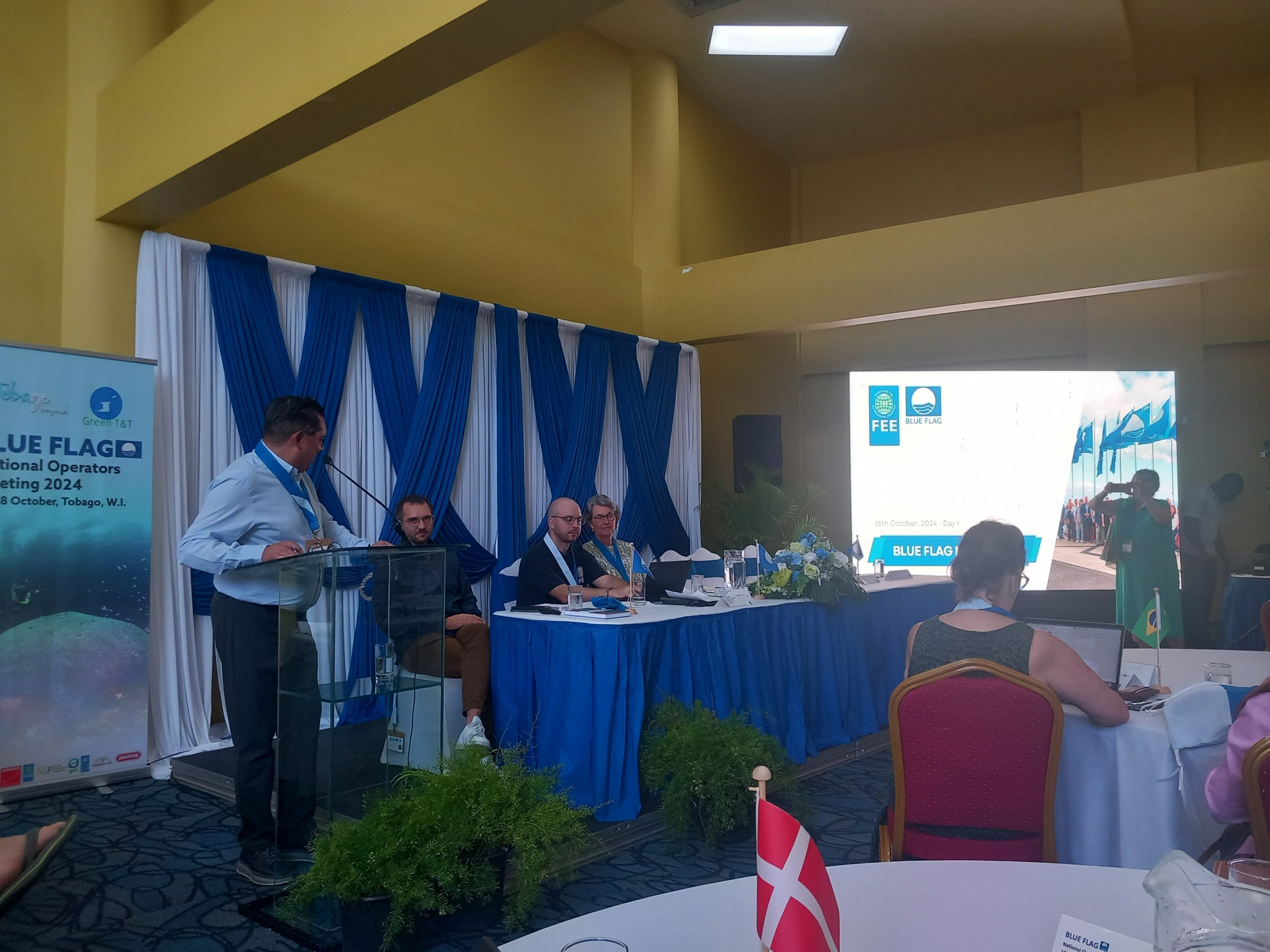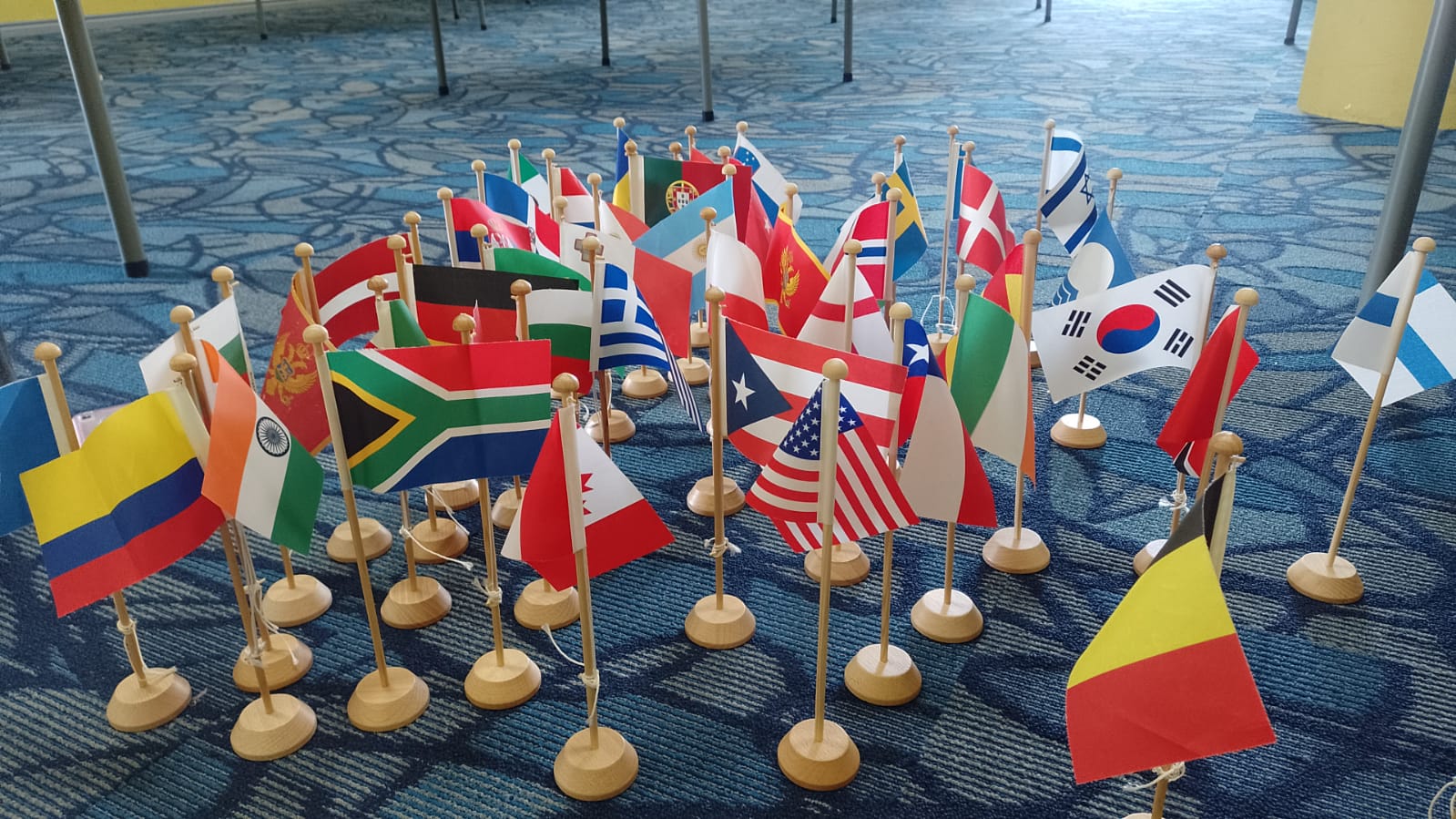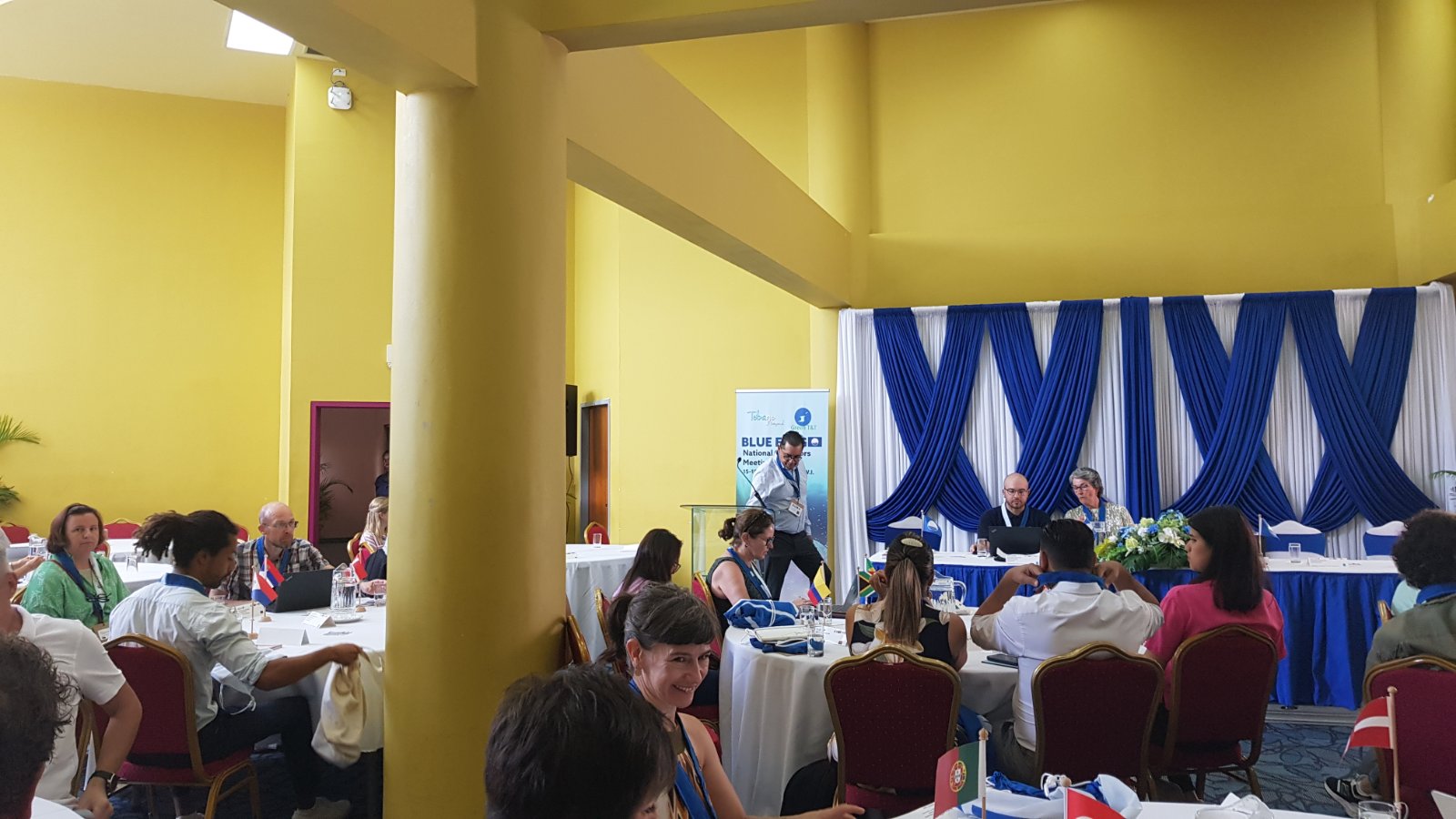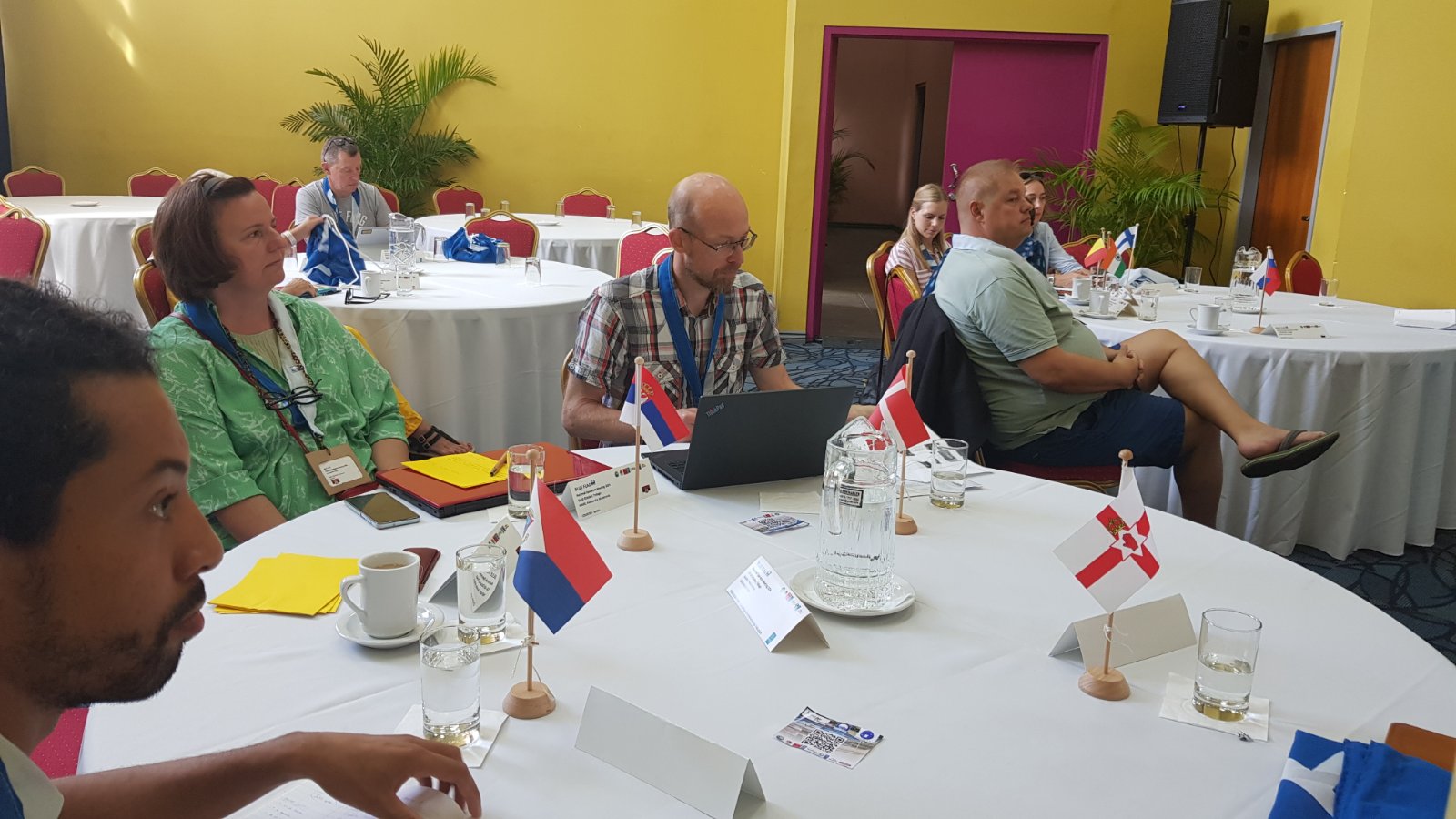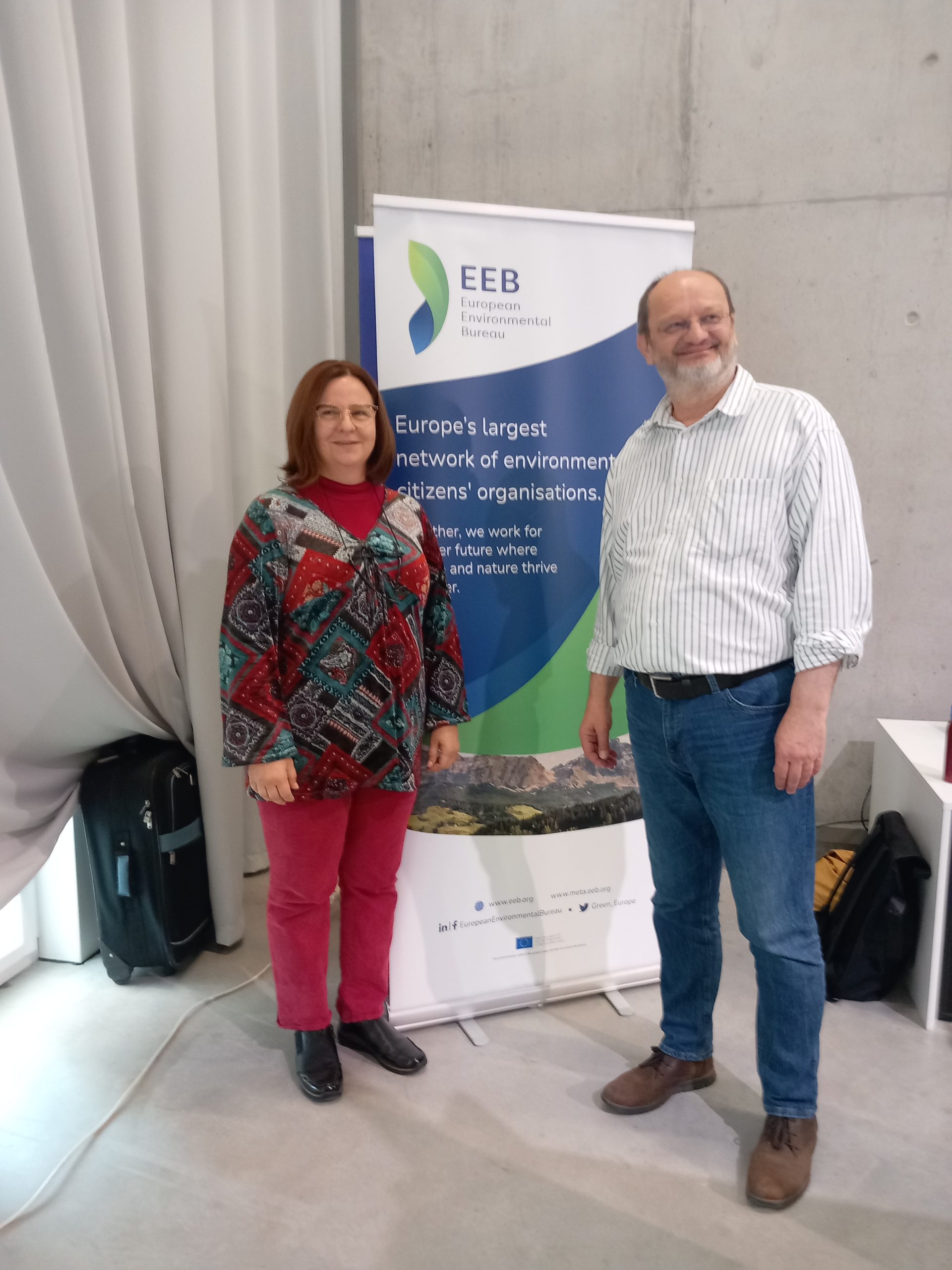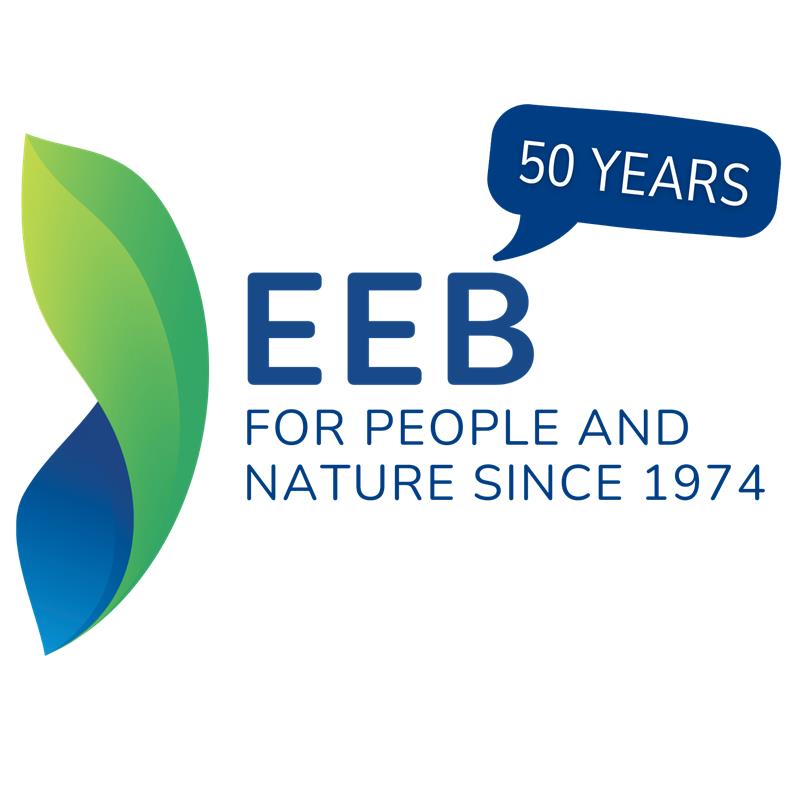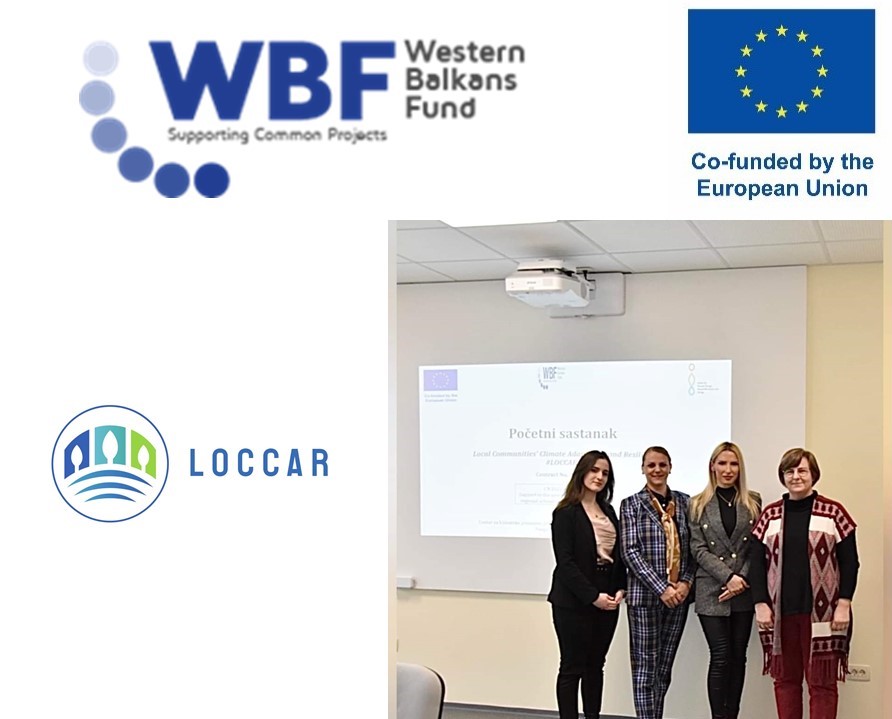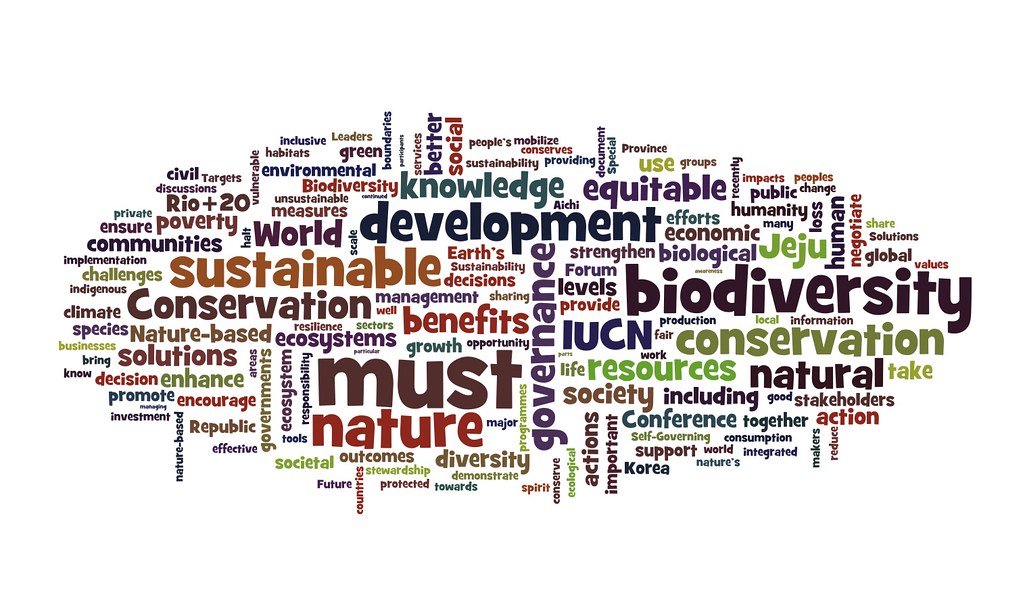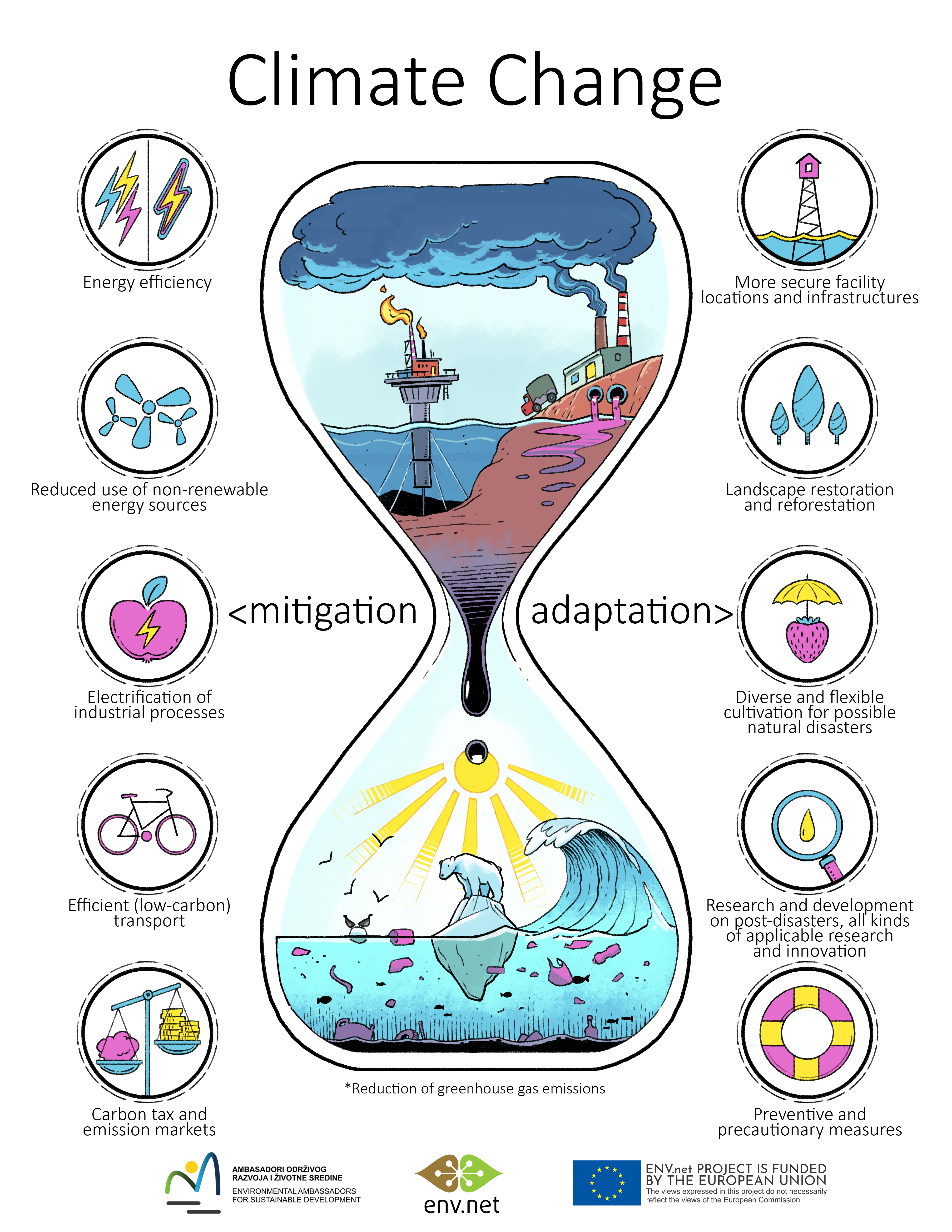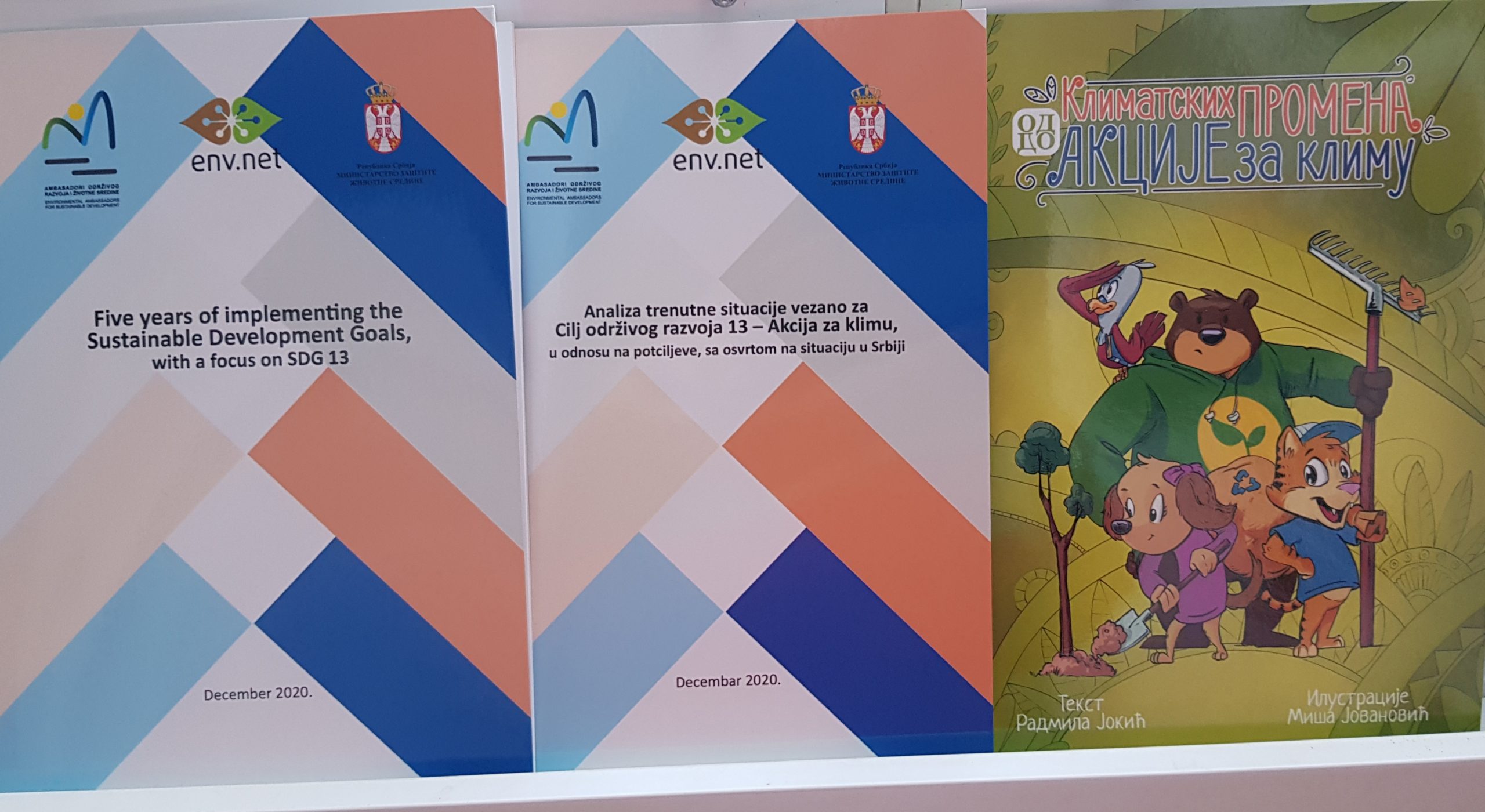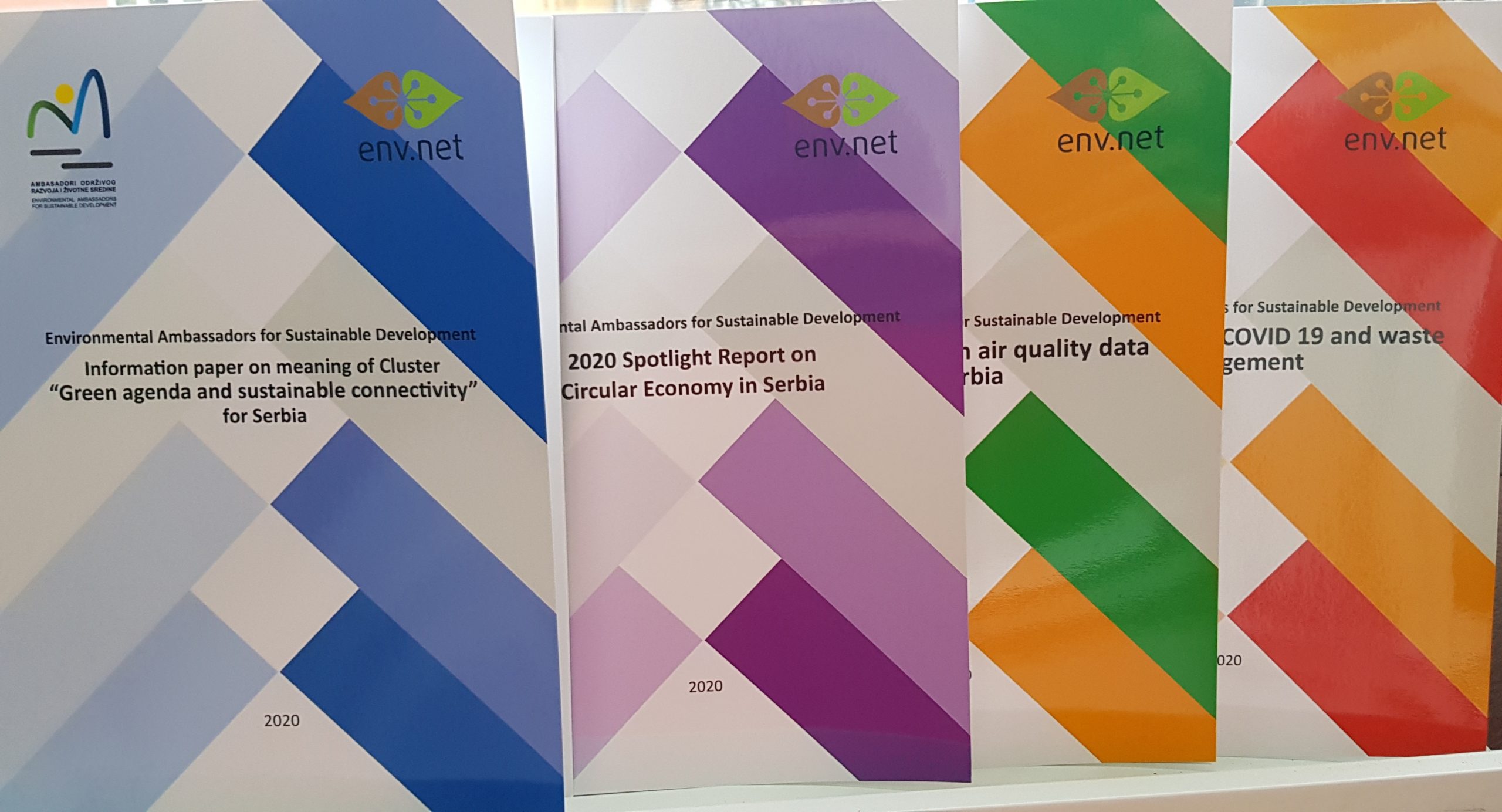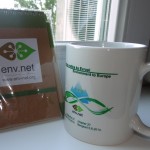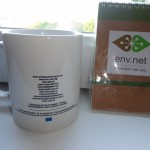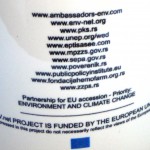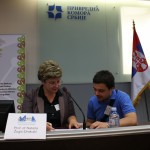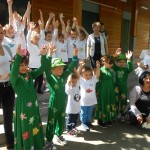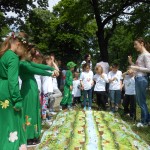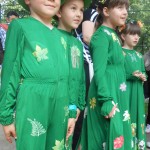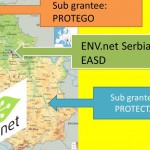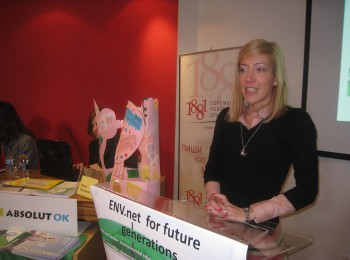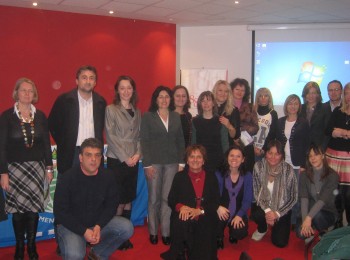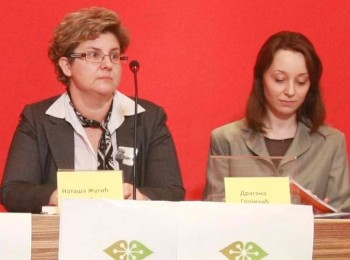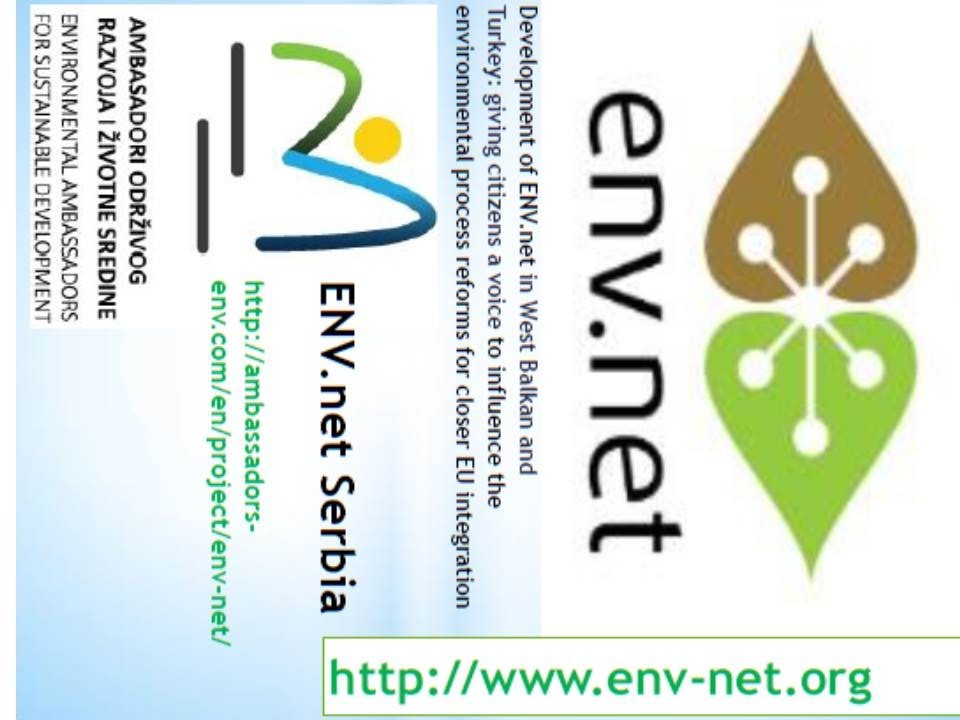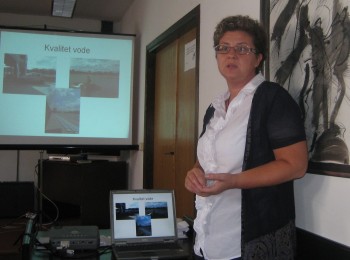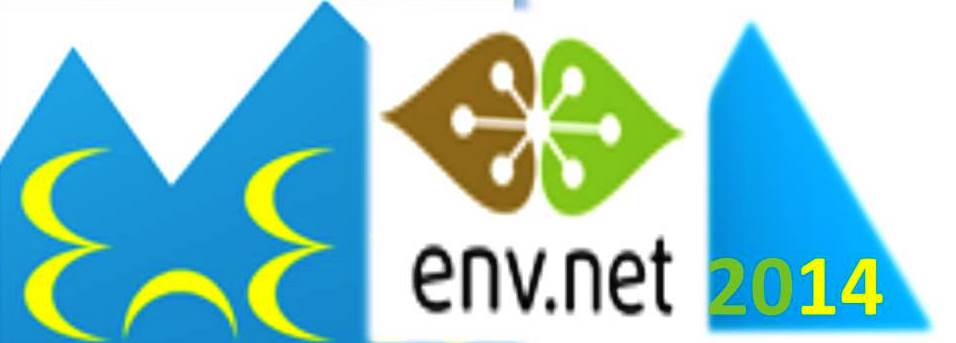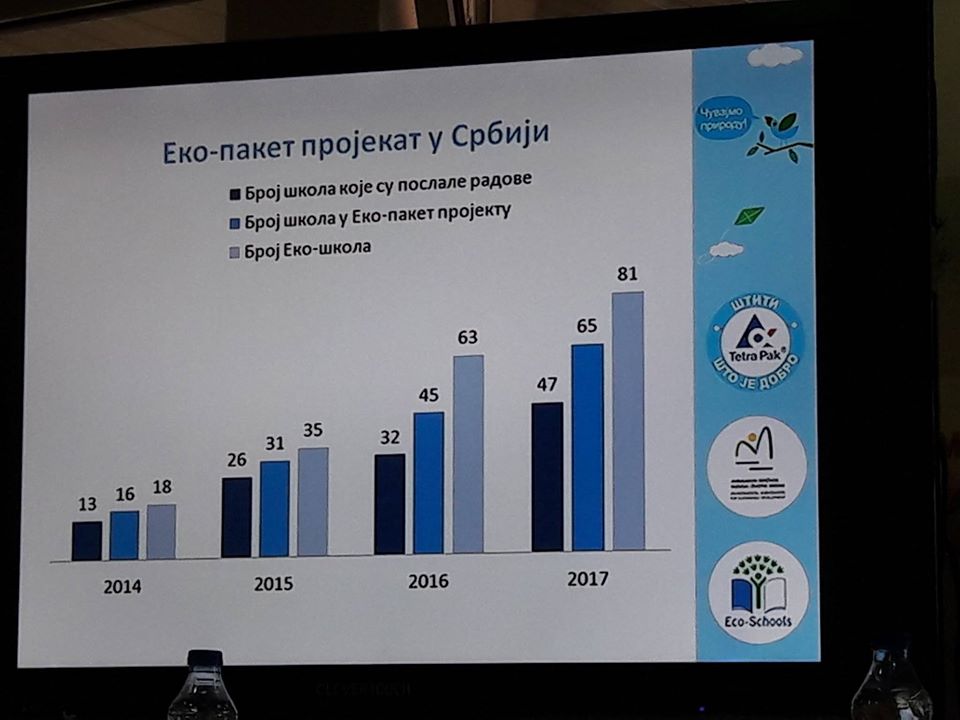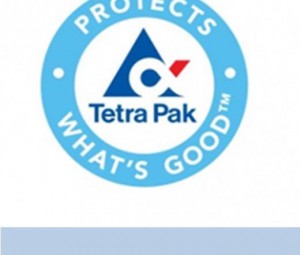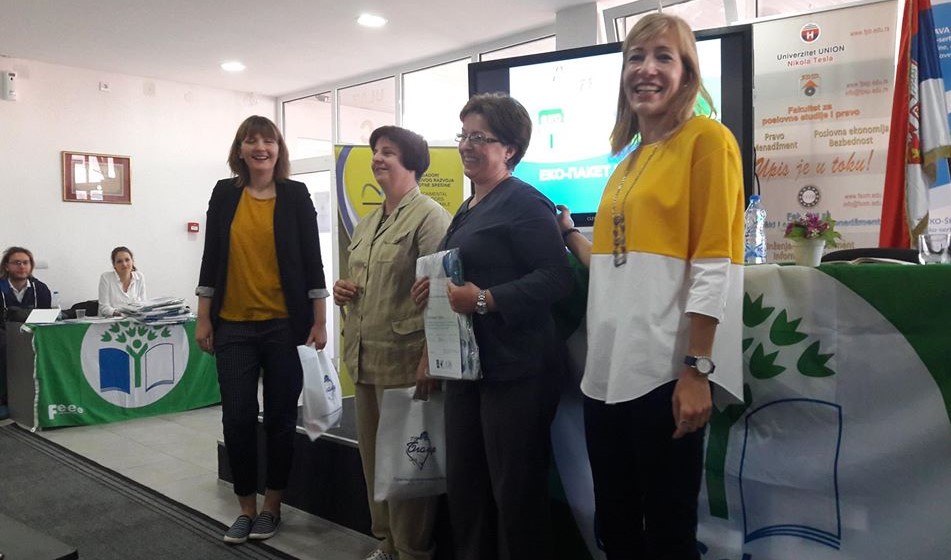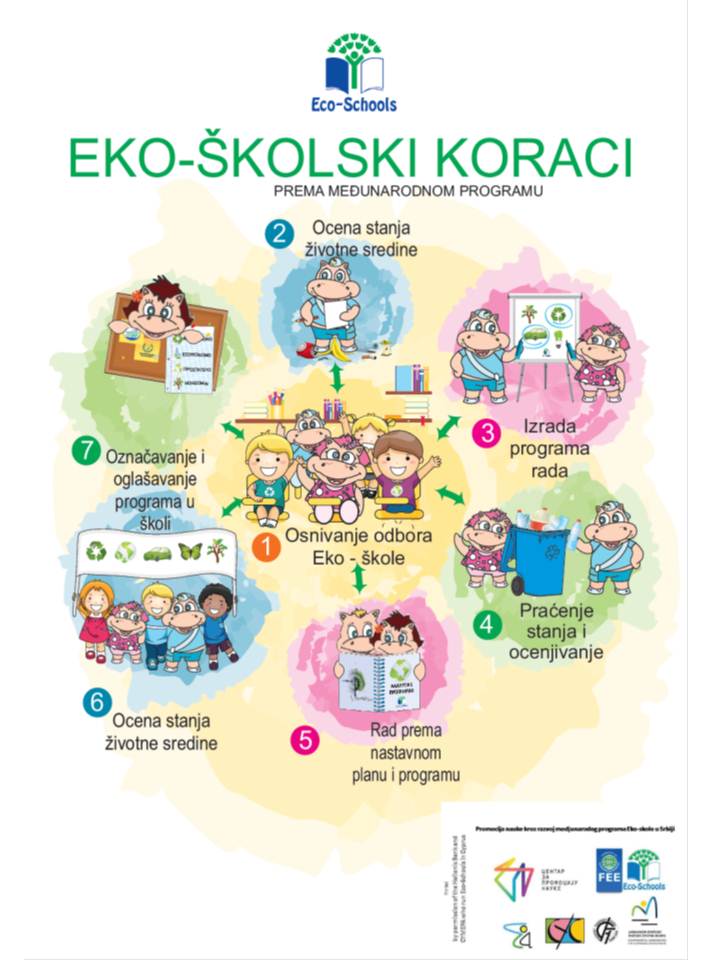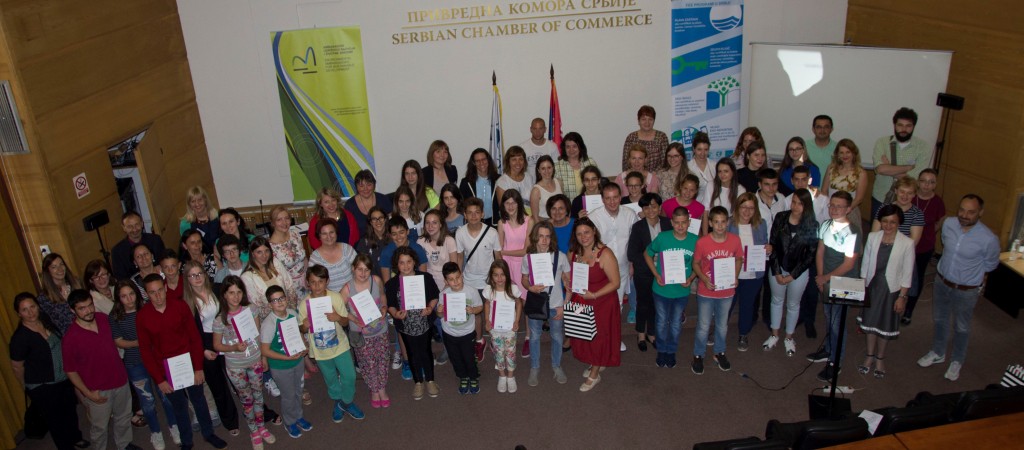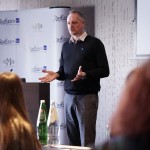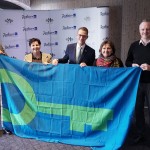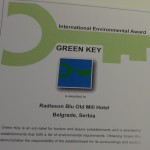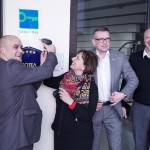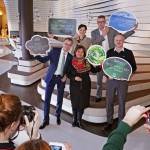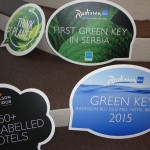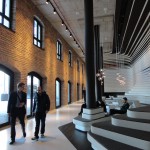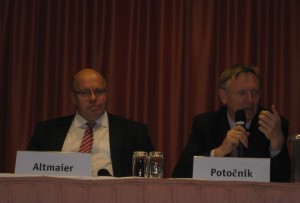Blue Flag NOM 2024 October 15-18, Tobago
The Blue Flag NOM was held in Scarborough, Tobago, from 15 to 18 October 2024. That was a great opportunity for BF operators around the world to meet and exchange the latest progress in implementing the BF program in their own countries. In total 45 participants, national operators of the program, from around 40 countries around the world, FEE Global representatives, and a hosting organization from Trinidad & Tobago number more than 60 participants, who had the opportunity to hear about updates from FEE, done by Lesley Jones, President of FEE; Past Year´s Highlights From Blue Flag International; the Blue Flag Action Plan 2024-2025 and among other, the big picture: Blue Flag upcoming challenges towards certification requirements: Green Claims, Ecolabels, and Substantiation. Discussion was open for further development on the detailed picture: ECGT Directive, Accreditation, and Process Review, what does it mean for the Blue Flag program? The discussion was also launched on draft new beach criteria and draft new sail training vessels criteria.
Communication and advocacy workshop in relation to the Blue Flag certification requirements was done, as well as a presentation of “Semaphore”, a historical partner to the BF program and another partner “Pick A Pier”.
Presentations were done by colleagues from Latvia: EU Beach SOS Project, Colombia: Alignment With National Public Beach Programme and India: Blue Flag as an enabling programme for Local Communities
The presentation was prepared by the Secondary Schools Tourism Club.
A stakeholder Knowledge Sharing Session was facilitated where the CSO-Government-Private Sector Policy Knowledge Fair presented how to amplify and improve global and national policy engagement regarding environmental sustainability and promote cooperative decision-making
CLIMATE CHANGE – Session one
BIODIVERSITY – Session two
POLLUTION- Session three
Blue Flag SIDS Strategic Meeting at the National Level was organized. The THA, Private Sector and Civil Society Organization (CSO) counterparts have reached a consensus on advancing the Blue Flag program in Tobago that aligns seamlessly with THA’s existing policies, contributes towards achieving Sustainable Development Goals (SDG), fortifies the blue economy and is in full accord with FEE’s GAIA 20:30 Strategy.
Desired Output: Preliminary Blue Flag implementation framework recommendations for future collaboration that synergize with THA’s policy direction and uphold solidarity with SDG targets, contributing to the region’s blue economy and embodying principles consistent with FEE’s GAIA 20:30 Strategy.
FEE Regional Development in the Caribbean/Americas Region, Panel Discussion, facilitated by FEE.
The FEE’t for Purpose process, initiated in October 2023, aims to enhance FEE’s effectiveness and align it with strategic goals. Six working groups were formed to address topics related to FEE membership and financial systems. In early 2024, multiple sessions focused on membership structure, programme quality standards, and financial systems. By mid-2024, further meetings refined these discussions, with agreed outcomes such as voting rights. Future focus areas include developing criteria for full members running one programme, managing programmes across countries, consortium membership, affiliate membership, standardizing membership agreements, and streamlining the membership application process. These efforts aim to ensure clarity and consistency in FEE’s membership structures and standards.
Additionally, and as part of this process, FEE is researching ways to expand its impact through its programmes in Caribbean countries without a resident NGO capable of running the programme. It would like to do so by leveraging the combined expertise and established networks of FEE. Building on the knowledge and recommendations of regional actors and partners, such as the Caribbean Tourism Organisation (CTO) and Caribbean Alliance for Sustainable Tourism (CAST), the Association of Caribbean States (ACS), the Caribbean Energy Chamber and the University of the West Indies (UWI) – it would ensure a future robust framework and necessary buy-in for successful implementation. Some countries of interest are Dominica, Grenada, Saint Lucia, Saint Vincent and the Grenadines, and Suriname.
Desired Outputs: Recommendations from the partners for a preliminary FEE Greater Caribbean implementation framework for future collaboration that synergizes with its Caribbean counterparts and aligns with FEE’s GAIA 20:30 Strategy.
Annual Assembly of the European Environment Bureau, Brussels, 14 May 2024
The Annual Assembly of the European Environment Bureau (EEB) was held in Brussels, where the achievements and results in the period between the two Assemblies 2023-2024 and the plans for the next period were discussed, taking into account the upcoming EU elections in June 2024. Attention is focused on the next composition of the EU Parliament, with the hope that support for environmental and climate change issues will continue into the next post-election period.
Proposed by the Environmental Ambassadors for Sustainable Development (EASD), a new President of the EEB – Tony Vidan, a longtime friend and supporter of the EASD, was elected. Providing a short speech, Toni emphasized the importance of joint work in achieving the common goals of all EEB members from the EU, but also from countries that are in the process of joining the EU.
During the Annual Assembly, members of the EEB were invited to sign THE EUROPEAN PACT FOR THE FUTURE – A GREEN AND SOCIAL DEAL FOR A ONE-PLANET ECONOMY, fostering hope and courage, opening up opportunities, creating well-being for all, catalyzing competitiveness through sustainability and driving the necessary transformative system change for a sustainable future. More about the European Pact at the following link: https://euelections.eeb.org/?_gl=1*1mv6x55*_ga*MjAyMDIwMDA3MS4xNzE1Njc1MzQ5*_ga_1EW8HFF60C*MTcxNTY3NTM0OC4xLjAuMTcxNTY3NTM0OC4wLjAuMA..
Participation in EEB’s Annual Conference – Brussels, 13 May 2024
EEB’s Annual Conference is taking place in Brussels, as an occasion to celebrate EEB’s 50th Anniversary. The event is organized in collaboration with the Belgian presidency of the Council of the European Union and Bruxelles Environnement.
2024 is a specific year from several points, concerning the environmental movement in the EU, especially. It will be marked by the elections to the European Parliament taking place during Belgium’s Council Presidency in June. The attention is paid to the future of the European Green Deal, emphasizing the following: stepping up and putting in place what is needed to achieve carbon neutrality, circularity, zero pollution and the protection and restoration of nature; giving more influence to divisive positions and short-sighted plans vs. rallying behind the joint objective of a just transition to a sustainable future.
It is a global matter of new political leaders, from the West to the East, from the North to the South, will be climate and the environment turn in a progressive, or regressive way?
2024 is a historic year for the EEB itself: Europe’s largest environmental federation – celebrating 50 makes it one of the oldest civil society networks active in EU policymaking. Within sessions and experts/activists participated and presented their recent work, it was a good opportunity to look back at 50 years of European environmental policies, summarize past achievements and reflect on lessons learned during half of the century-long trip full of challenges.
Sessions covered:
Climate Adaptation and Resilience
Keeping Europe’s Promise of a Healthy Environment-Towards a Zero Pollution Future
Circular Economy in Action: Making Sufficiency the Norm
Way Forward Towards Climate, Environmental and Social Justice
More information at https://conference.eeb.org/about/
LOCCAR (Local Communities’ Climate Adaptation and Resilience)
According to the Green Agenda for the Western Balkans (2020), the Western Balkans is recognized as one of the regions in Europe most heavily affected by climate change. In addition, climate risks are not sufficiently covered at the local level in the documents and activities implemented. Still, there is no understanding that climate change (heatwaves, droughts, wildfires, coastline erosion, rising sea levels) affects not only the environment but also the local economy and the health of the population, due to a lack of awareness raising among the local population. In its report for Western Balkan countries, European Commission in 2021 stated that they must align with the EU Strategy on Adaptation to Climate Change.
The project Local Communities’ Climate Adaptation and Resilience (LOCCAR) aims to assist local authorities in better understanding, preparing for, and managing climate risks, as well as developing innovative solutions to build resilience. The project will also contribute to establishing sustainable regional cooperation in building climate resilience in the Western Balkans, having in mind that efficient cooperation mechanisms among neighboring countries in the focus of this project (Serbia, Montenegro, and Bosnia and Herzegovina) are missing, even though the transboundary nature of climate-related risks at the local level is reality.
The objective of LOCCAR project is to accelerate climate change adaptation on the local level in Western Balkans through enhancing Civil Society Organisations (CSOs) role in the transformation towards climate resilience, by empowering CSOs visibility in policymaking, raising awareness of local decision-makers on the impacts of climate change on the local communities and supporting sustainable regional cooperation in building climate resilience in the Western Balkans.
A regional round table with the participation of main stakeholders from all three countries will be organized at the end of the project. Based on consultations with selected municipalities, Brochures/Guidelines for the local decision-makers on climate change adaptation in local strategic and policy documents will be prepared and distributed. It is expected that in total 9 selected municipalities in two rounds of meetings with municipalities.will provide their contribution. Using the digital dissemination of the Brochure/Guidelines via websites and digital platforms (Facebook, Instagram, LinkedIn, Twitter) of the 3 CSOs and 9 municipalities, a significant portion of the population in Western Balkans will be reached with the Joint Project’s outputs.
Project partners are Center for Climate Change, Natural Resources and Energy of the University of Donja Gorica (leading partner, Montenegro), a Resource Center for the Environment REC BIH (Bosnia and Herzegovina), and Environmental Ambassadors for Sustainable Development (Serbia).
LOCCAR project is financed by the Western Balkans Fund and co-financed by the EU in the frame of IPA.
Final LOCAL project publication (- Jačanje otpornosti i kapaciteta prilagođavanja lokalnih zajednica na klimatske promjene u Crnoj Gori, Bosni i Hercegovini, Centar za klimatske promjene, prirodne resurse i energiju Univerziteta Donja Gorica, Podgorica, juli 2023 )
Solar energy for citizens in Western Balkans
The project Solar energy for citizens in Western Balkans started in January 2023, supported by Western Balkan Fund and co-financed by EU, with the aim to promote the best practices regarding the possibility to use solar energy by citizens, informing, engaging and mobilizing citizens to be active participants in neutrality transition. During the project implementation, the WB-Solar Net web platform will be established in order to help CSOs in raising awareness on the great potential of solar energy for advancing the regional agenda for a green and sustainable economy, using innovative solutions on clean energy, and following EU Directives.
Nine partners from Albania, Montenegro, North Macedonia, and Serbia will work together to enhance the capacities of CSOs in WB in addressing the poverty energy of marginalized groups, and to advocate for improving the legislation, simplifying and shortening the administrative procedures for delivering permissions to the citizens of WB to install photovoltaic panels. It is also expected that the capacities of CSOs will be improved, in order to strengthen the cross-border dialogue for environmental protection. In addition, through the project, CSOs will gather knowledge and improve their skills in raising the awareness for quick actions for the alignment of WBC policies with the recent European directives and initiatives.
At the end of the project, a network of CSOs and other stakeholders named “Western Balkans Solar Net/Solar4WB” will be established and become functional, to serve as a hub for best practices of self-consumers of solar energy. This will help citizens to be better informed about opportunities and possibilities, and to address the needs of marginalized groups of energy poverty. The network will provide initial recommendations on how to improve legislation, policies, and administrative procedures for potential solar energy users. The activities will be organized to update and consult the National Plans of Energy and Climate of Western Balkan countries.
The online website platform will be developed to become a future hub for CSOs, where will be presented different examples regarding the situation in the field of solar energy. Two webinars will be organized to present the situation of the solar sector, the opportunities, and the barriers. Advocacy efforts will be meetings with representatives of public institutions, TV discussions, articles in the newspapers, posts on social media, etc. The Western Balkans Solar Net, (Solar4WB) as a functional platform with data of members and stakeholders, legislation, procedures, and information on related subjects will be established and presented during the Final Conference at the end of the project.
The second online webinar “ADVOCATING FOR SOLAR ENERGY FOR THE CITIZENS OF THE WESTERN BALKANS “
EASD at more international meetings in August, September, October …..2022
- World Water Week 2022, Stockholm, Sweden

- Annual EXI Conference and Visit to the German Federal Ministry for the Environment, Nature Conservation, Nuclear Safety and Consumer Protection, Berlin (EASD is one of the organizations financed within the project)
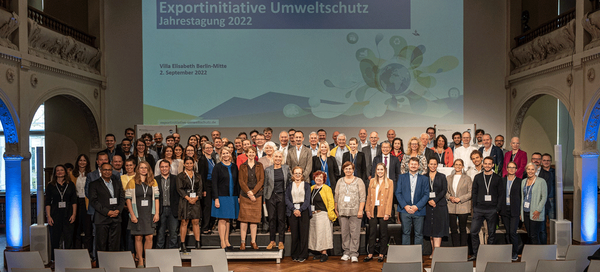
- AOR representative participated in the seminar “Balkan citizen energy ambassador” which took place in Tirana on September 1 and 2 . Lectures (on solar energy) were held at “Polis University”.
-
Presentation of the Green Agenda and circular economy strategies in the countries of the Western Balkans at the Circular Economy Seminar, Ankara, Turkey
-
Ninth Ministerial Conference Environment for Europe “Transforming planet” (Environment for Europe), Cyprus
AOR is a co-organizer of several accompanying events, during which the president of AOR spoke… 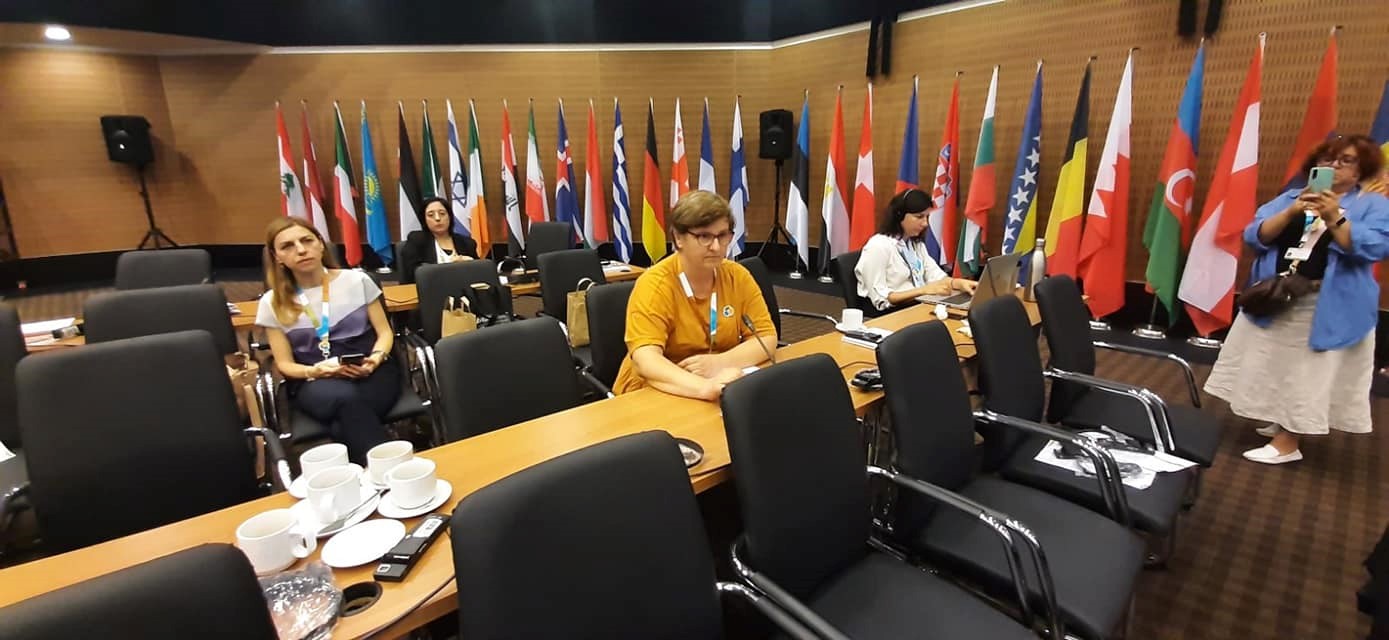
Biodiversity protection and nature-based solutions in focus of EASD activities
Concept of nature-based solutions implies searching for existing, sustainable solutions from nature in order to provide benefits for both human well-being and biodiversity, by addressing societal challenges. There are different solutions mapped so far and implemented in different areas and environments, such as protection, restoration or management of natural and semi-natural ecosystems; the sustainable management of aquatic systems and working lands such as croplands or timberlands; or the creation of novel ecosystems in and around cities. All solutions are designed to be implemented by local communities and related institutions and organizations (towards implementation of United Nations Decade of Ecosystem Restoration 2021-2030)
EU Biodiversity Strategy to 2030, represents a comprehensive plan under the European Green Deal, which serves to improve state of the nature in European Union, by protecting biodiversity and reversing the degradation of ecosystems. In the focus of this Strategy is increasing the area under protection for at least 30% of both land and sea in Europe, restoring degraded ecosystems and securing 20 billion EUR/year for biodiversity through various sources, including EU funds, national and private funding.
The main challenge in the region of Western Balkan, area with outstanding biodiversity, natural resources and huge number of solutions created by nature, is to set up Green Agenda and Biodiversity for the Western Balkans as important as all other Development Agendas. In 2017, the Biodiversity Task Force of South East Europe was established to serve as a technical and advisory body of the Regional Working Group on Environment (RWG Env) of the Regional Cooperation Council. The most important objective for Western Balkans in Green Agenda implementation is to mainstream biodiversity elements in other policy areas in order to improve state of protected areas (through sustainable financing), increase number of protected areas and increased surface area under protection, as well as to improve the status of the endangered species. In addition, these actions will lead to protect, restore and manage natural and semi-natural ecosystems; to establish sustainable management of aquatic systems and working lands, but also will provide different solutions and possibilities for creation of novel ecosystems in and around cities. The strategic Green Agenda for WB document will identify priorities to focus on, while the implementation would require synchronized actions and involvement of the entire region, by strengthening regional cooperation and involvement of all relevant institutions and organizations, in order to promote and implement nature-based solutions.
Biodiversity and nature protection are among EASD priorities in last ten years, reflecting in conference proceedings[1][2] , contribution to Study on Achievements and Perspectives towards a Green Economy and Sustainable Growth in Serbia, or training providing on ecological footprint. One of the priorities of EASD focus is education on importance of biodiversity protection, which is implemented mainly through the Eco-schools Serbia network. In the period 2017-2020, under the project The Great Plant Hunt biodiversity topic is introduced in Eco-schools Serbia network and started with implementation of the nature-based solutions concept.
From February 2022, EASD started to implement within Eco-schools Serbia network an Erasmus+ project ForLife , with leading partner from Slovenia, and another partner from Italy. This project is directly connected to nature-based solution concept, by using positive examples from nature, regarding promotion of protection, restoration or management of natural and semi-natural ecosystems and in the same time creation of novel ecosystems in urban and sub-urban areas where Eco-schools belong to.
EASD more focused to activities against plastic pollution
Environmental Ambassadors for Sustainable Development (EASD) started in 2020 with more focused engagement and activities in the thematic issue of plastic pollution. We found important UNEP initiative to beat plastic pollution , as well as designing out plastic pollution .
EASD started with analysis, participation in global studies and relevant national/local surveys and initiatives related plastic in products and in waste.
EASD activities include activities in : Science and Research (for better Governance and regulation) – A circular economy for plastic, Education and learning against plastic pollution, Promotion of sustainable travel against plastic pollution, Promotion of clean beach against plastic pollution, as well as Processes towards global plastic treaty and EU accession, participation and monitoring.
Further, EASD is following development of an international legally binding agreement . See resolution at the resumed fifth session of the 2022 United Nations Environment Assembly (UNEA-5.2) in Nairobi to end plastic pollution and forge an international legally binding agreement by 2024. EASD special attention is to harmonize global process against plastic pollution with EU accession process at national and regional level. To note that Serbia is candidate country for EU membership and Cluster 4 was opened for negotiation in December 2021. See also EASD work in theme EU accession and enlargement. In this period, EC priority is European Green Deal with action on plastics to tackle plastic pollution and marine litter, and to accelerate the transition to a circular plastics economy . For Western Balkan, Action Plan for the Implementation of the Sofia Declaration on the Green Agenda for the Western Balkans 2021-2030 (GAWB) is approved.
ENV.net
ENV.net project consists of ENV.net 1/2 (2012-2016) and ENV.net 3 (2017-2020) projects. EC supported
ENV.net 1/2: ENV.net – Development of ENV.net in West Balkan and Turkey: giving citizens a voice to influence the environmental process reforms for closer EU integration, EuropeAid/132438/C/
ACT/Multi – 2012/306-642 and 2014/351-610; Partners for project implementation are: Puntosud , EASD , Co-PLAN , EEB – European Environmental Bureau, ATRC and TEMA . The project builds on the experience of an EU-funded project, namely the Environment Forum, implemented in the period 2009-2012, aiming at developing capacities of environmental NGOs to establish a constructive dialogue with national authorities. The present project strategy has been designed to achieve a greater commitment and capacity of a group of CSOs coming from Environment Forum experience and which have agreed on the creation of a new network, the ENV.net, to support the civil activism, give citizens a voice and influence the public reform processes in the approximation to the environment acquis. With the view to further enhance their capacities to work with CSOs and to share experience with other European countries, EEB has accepted to participate and to share its experience. Project objective – Greater commitment and capacity of the ENV.net to give citizens a voice and influence public sector reform processes in the environment sector through analysis, monitoring and advocacy. As one of the outcome National ENV.net networks (to complement Regional ENV.net network) were established; established ENV.net Network in Serbia have 54 organizations (multistakeholders).
ENV.net3: “ENV-net factoring the environmental portfolio for Western Balkans and Turkey in the EU Policy Agenda” – EuropeAid/154870/ACT/Multi ; EASD (Serbia) partners for project implementation are: 4X4X4 Balkan Bridges from North Macedonia, European Environmental Bureau from Belgium, Advocacy Training and Resource Center, from Kosovo*, Green Home, from Montenegro, Lir Evolution, from Bosnia and Herzegovina, TEMA – the Turkish Foundation for Combating Soil Erosion, for Reforestation and Protection of Natural Habitats, from Turkey and Foundation Punto,Sud, from Italy. The project contributes to the improvement of environmental policy-making and implementation in compliance with the EU standards. To this end, the network foresees to contribute to both improved and intensified inter-action among actors (including environmental CSOs, media and policy-makers) and an overall more enabling technical and financial environment where these actors operate. The action sets out to strengthen the profile of ENV.net as the leading network and bridging actor in environmental policy-influencing in the WB and Turkey region (vis-à-vis EU). Further, it foresees introducing and initiating a discussion on the Circular Economy concept in the region, as well as intensifying climate change actions. The action also foresees a number of value-adding, cross-cutting elements such as inter-partner learning/exchange, networking, and thematic organisational support to third parties (i.e. local grass-root organisations, media).
____________________________________
Paper published: Andjelka Mihajlov, Aleksandra Mladenovic & Filip Jovanovic, Contribution to Environmental Communication: comparative analysis of two qualitative methods as the performance to European Union accession, in “Adapt to Survive. The role of social media, sharing and communication to ameliorate this world “, Conference Proceedings Book Edited by Margarita Kefalaki, Communication Institute of Greece (COMinG),Athens, p.57-66 , 2021 ( ISSN: ISBN: 978-618-85622-3-3 ), Available at https://coming.gr/wp-content/uploads/2021/12/1_1_2021_Adapt-to-survive_Book_conf-proceedings_COMinG.pdf
Selected activities:
March 2021:
Information paper on Climate Change and Energy
Information paper on Climate Change and Floods
August 2021: Environmental Communication: Media Archive Reports as a Participant Science Tool
Promotion by media (Da li smo spremni za sve češće poplave?)
December 31, 2020: ENV.net3 project final steps – infographics with documents developed by EASD
____________________________________
Report on monitoring the progress of national environmental legislation (Chapter 27) in 2018, 2019, and half-year 2020, with projections through end-2020 / Izveštaj o monitoringu napredovanja nacionalnog zakonodavstva o životnoj sredini (Poglavlje 27) u 2018., 2019. i prvoj polovini 2020. godine, sa projekcijom do kraja 2020.godine (Extended abstract in English, Full text in Serbian)
Position Paper on COVID 19 and waste management
Circular Economy goes beyond Waste Management presented at EurAsia Waste Management Symposium 2020
Information paper on meaning of Cluster “Green agenda and sustainable connectivity” for Serbia
Reflection paper on air quality data for Serbia
2020 Spotlight Report on Circular Economy in Serbia
EASD publication on circular economy acknowledged by European Circular Economy Stakeholder Platform
Virtual tour on the experience from Italian practices in circular economy
November 2020: Joint civil society statement for Sofia Summit
EASD research presented at EurAsia Waste Management Symposium
October 2020, New Momentum for the Environmental Agenda in the Western Balkans and Turkey?
Establishment of the South East European Platform to Beat Pollution – SEEPP
Recap the moments from EnE19/ENV.net Conference
March 2019: UN Environment : 4th Assembly (and pre- and side-events) , ENV.net related event
November 2018: To report: The first Regional Conference on Circular Economy was success ; The first regional conference on circular economy, Belgrade, November 2018: Agenda
Call for sub-grants (6.novembar 2018: Otvoren poziv za dodelu sub-grantova u okviru ENV.net projekta)
YRE competition: apply before February 1, 2019.; Theme: Energy Efficiency
ENV.net Initiative: to update National Strategy on Sustainable Use of Natural Resources and Goods, by applying Circular Economy concept ; ENV.net Initiative and Knowledge based advocacy: to update National Strategy of Sustainable Use of Natural Resources
Circular economy knowledge based advocacy in Eco-schools network in Serbia
May 2018. Guest lectures made at two Universities in Serbia: “Circular economy is concept and process, and still not full circle” ; Participation at the Green Parliamentary Group meeting
Follow project at : facebook.com/envnetsite/ and www.env-net.org
February 2018 – ENV.net 3 Kick-off Meeting in Tirana
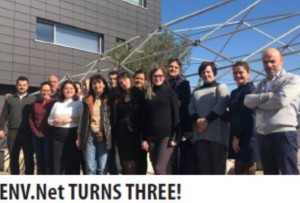 ________________________________________________
________________________________________________
In December 2017. we started with ENV.net 3 : ENV-net factoring the environmental portfolio for Western Balkans and Turkey in the EU Policy Agenda (reference number 2017/394-372)
ENV.net 3 – Serbia team include: Aleksandra Mladenovic –National Coordinator and Manager. In addition, Thematic experts/consultants, on demand, are Prof dr Andjelka Mihajlov and Filip Jovanovic, and Media communication expert, on demend, is Milica Momcilovic.
________________________________________________________________________________
Development of ENV.net in West Balkan and Turkey: giving citizens a voice to influence the environmental process reforms for closer EU integration – EuropeAid/132438/C/ACT/Multi – 2012/306-642 and 2014/351-610 (2012-2016)
The project builds on the experience of an EU-funded project, namely the Environment Forum , implemented in the period 2009-2012, aiming at developing capacities of environmental NGOs to establish a constructive dialogue with national authorities. The present project strategy has been designed to achieve a greater commitment and capacity of a group of CSOs coming from Environment Forum experience and which have agreed on the creation of a new network, the ENV.net, to support the civil activism, give citizens a voice and influence the public reform processes in the approximation to the environment acquis. With the view to further enhance their capacities to work with CSOs and to share experience with other European countries, EEB has accepted to participate and to share its experience. Project objective – Greater commitment and capacity of the ENV.net to give citizens a voice and influence public sector reform processes in the environment sector through analysis, monitoring and advocacy.
Partners for project implementation are: Puntosud , EASD , Co-PLAN , EEB – European Environmental Bureau , ATRC and TEMA . EASD Activity circles represent the scope of our activities.
Project launched site for presentation of activities in all participating countries, as well as facebook page and ENV.net Newsletters.
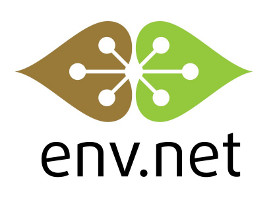 ENV.net 1/2– Serbia team include: Dr Nataša Žugić Drakulić –National Coordinator and Filip Jovanović – project manager , chosen in transparent process by „ Environmental Ambassadors for Sustainable Development“, partner organisation in this project. In addition, National consultant for European integration is Prof dr Andjelka Mihajlov , dr Hristina Stevanović Čarapina is leading expert .
ENV.net 1/2– Serbia team include: Dr Nataša Žugić Drakulić –National Coordinator and Filip Jovanović – project manager , chosen in transparent process by „ Environmental Ambassadors for Sustainable Development“, partner organisation in this project. In addition, National consultant for European integration is Prof dr Andjelka Mihajlov , dr Hristina Stevanović Čarapina is leading expert .
__________________________________
ENV.net Serbia network is functioning : Some of activities could be followed only in Serbian, like calls to participate, and other actions targeted to citizens in Serbia.
**************************************
Highlights: ENV.net publications
- A Guideline of EU Accession Monitoring Tools for CSOs in candidate and potential candidate countries: Chapter 27, (Authors and contributors: Andjelka Mihajlov, Natasa Zugic-Drakulic, Filip Jovanovic, Federico Bastia, Simona Pogliani, Mara Silina, Teida Shehi and Dusko Hristov), Published by Environmental Ambassadors for Sustainable Development with the financial assistance of the EU – ENV.net project document, Belgrade January 2015
- How to influence environmental policy through effective advocacy (Authors: Margherita Tolotto and Mara Silina), ENV.net Advocacy Toolkit, European Environmental Bureau, Brussels, January 2015
- Climate change and challenges of the enlargement (Authors: Anja Kolmuss, Dragana Mileusnic, Zanna Vanrenterghem and Richard Filcak), ENV.net Advocacy Toolkit, European Environmental Bureau, Brussels,September 2016
June 2016: Agenda, WED Messages from Serbia: 12th Regional Conference “Environment to Europe” , REPORT FROM EnE16-ENV.net, BELGRADE, SERBIA
April 2016 – ENV.net Course: CSO Participation in Accession Process , Chapter 27: CSOs participation
March 2016 – New internet portal: Greenweb
January 2016 – Save the date for EnE16-ENV.net Conference ; We participate: Regional Conference: „Sustainability of the FPAs” , Brussels . Water-food-energy-ecosystems nexus assessment in the Sava River Basin – Lessons learned and further steps
October – December 2015 – Ministry support to ENV.net , Event
October – Partnership for Climate Change issue : Serbia’s climate talks – on the way to Paris
June 11 – European Commission Vice-President Mr Maroš Šefčovič had meeting with CSOs in Belgrade. EASD participate!
June 7 – Bicycling-ENV.net promotion in town Gornji Milanovac , Green day in Gornji Milanovac
June 5 – Regional Conference ”Environment to Europe” EnE15 – ENV.net EU Environmental Horizontal Legislation: Methods, Standards and Tools , Invitation , AGENDA , Proc. of papers
May 26, 2015 – Promotional activity
April 21, 2015 – Participation in Public Hearing on Climate Change related challenges in Republic of Serbia
April – THE ELEVENTH REGIONAL CONFERENCE ENVIRONMENT TO EUROPE – ENE15 – ENV.NET acknowledged as the European Sustainable Development Week event
March 22 – Celebrating the World Water Day in Serbia: field visit to Ada Ciganlija
February 2, 2015: Invitation for EnE15-ENV.net Conference launched
January 29, 2015: A Guideline of EU Accession Monitoring Tools for CSOs in candidate and potential candidate countries (ENV.net region): Chapter 27 , document finalized
January , 2015: Promotion of Publication
December 31: Thematic Publication “Environment to Europe”, 2014 ( Tematski zbornik radova “Životna sredina ka Evropi”)
December 12: ENV.net Serbia Seminar: Environmental Education in Schools
November 24-25, ENV.net on the margins of ECF Annual Meeting in Brussels with European Commision
November 4-5 , Regional training on the process of designation of potential Natura 2000 sites
October 30 – Conference “EU accession in the field of environmental protection and the role of local authorities”
October 28 – Ministry of Agriculture and Environmental Protection is co-funded ENV.net project , contract signed
October 22-23, Belgrade: ENV.net training: “EU project design process and Implementation of environmental policy”, Invitation , Agenda , Training
October 2014 – ENV.net brochure published and presented
October 14 – ENV.net related: Participation on Conference “Eco-standards and Education”
October 8 – “Little progress has been made in the areas of environment and climate change”
September 29 – ENV.net Round-table Dialogue for Green Future (ENV.net okrugli sto sa niškim srednjoškolcima “Dijalogom ka zelenijoj budućnosti“) (sub-grant)
September 23-25, Brussels: ENV.net preparatory partnership meeting and Framework Partnership Agreement (FPA) Closing Event for Phase I
September 19-24 , We are following Explanatory Screening for the Chapter 27
August 29 – ENV.net (sub-granting) publication published PUBLICATION : “Species of plants and animals of special conservation concern in EU” , in Serbian
July 27 – Partnership with media – Radio Beograd 2
June 19 – Eco-package initiative as the example environmental education for the future EU citizens
June 5 – CONFERENCE , ENV.net multi-stakeholder Conference on Chapter 27: about 200 participants
June 4 – Meeting with media , Moments from the Conference for Media
May 29, 2014 – ENV.net Serbia Conference organisation on the good track –Agenda for EnE14/ENV.net Conference “Environment to Europe”, June 5, 2014 in SCC – opening at 10:00
May 22-24, 2014 – 4th Partners Meeting in Milan
May 13, 2014 – European Solar Days – participation in promotion of EU environmental values
May 10, 2014 – ENV.net Let us clean up Europe! event: Ada Ciganlija Beograd ; ENV.net Serbia with children, parents and teachers “cleaning up Serbia” , Event in pictures
May 22-24, 2014 – 4th ENV.net Partners Meeting in Milan
May 7-8, 2014 – Some of ENV.net Partners meet in the corridors of ECRAN ECF Meeting
April 25, 2014 – UNEP acknowledged EnE14-ENV.net 2014 Conference as the World Environmental Day Event
April 5, 2014 – Education for future citizens of EU: guest lecturing at the Law Faculty
April 4, 2014 – EU Delegation to Serbia: Consultative Meeting with CSOs on progress towards EU in 2014
Aprl 4, 2014 – We participated to the meeting related to EU-Serbia Civil Society Joint Consultative Committee – JCC
April 2, 2014 – ECRAN NGOs Environment and Climate Change Forum – Evaluation Outcome – Congratulation to ENV.net partners!!!!
April 1, 2014 – Protego and Protecta sign subcontracting contracts
Marc 20-9, 2014 – EASD written contribution to the 2014 Progress Report
March 25, 2014 – Participation on UNECE consultation related to the 3rd EPR for Serbia
March 23, 2014 – ENV.net sub-grants winners announced , ENV.net
March 20, 2014 – We participate on Panel at Faculty of Organisation Sciences – University of Belgrade : Knowledge about Environment
March 9, 2014 – Technical (formal requests) evaluation of sub-grants application finished: 45 projects eligible for further evaluation
March 6, 2014 – Promotion of global activity EARTH HOUR (Marh 29, 20:30-21:30) and call for participation
March 4-6, 2014 – We participate in Zagreb on Workshop on Water-Food-Energy-Ecosystems Nexus Assessment in the Sava River Basin
From February 2014 – EU negotiation process: we are following explanatory screenings
February 26, 2014 – In accordance with procedure, QUESTIONS by potential applicants with our ANSWERS are posted on web site on February 26, at 07:00 , taking in account questions received by February 25 at 23:59
February 20-21, 2014 – EASD-ENV.net Serbia participated in defining the first strategic framework for CSOs development
February 18,2014- Knowledge based advocacy: Environment should be within priorities in the negotiations with EU
February 13, 2014 – Environment in youth policy in Serbia
February 12, 2014 – Meeting with ENVAP2 Project representatives
February 7, 2014 – Participation on Training related the Sector Planning Documents – SPDs
February 1, 2014 – Call of proposals for ENV.net sub-granting in Serbia “EU: we watch and learn to be ready!”
January 30, 2014 – Participation on public hearing by the European Economic and Social Committee (EESC) Study Group
January 30,2014 – Thematic meeting of the SECO mechanism on IPA II programming
January 30, 2014 – Participate in the Mapping of CSOs and other stakeholders in in the process of EU accession negotiations
January 19, 2014 – EASD / ENV.net Team reading of European Parliament Resolution, January 2014
January 07, 2014 – Starting preparation for ENV.net 2014 Round-table / Conference
January 2, 2014 – Attention to ENVIRONMENT in EUROPA DAIRY
_______________________________________________________________
December 23, 2013 – Workshop on environmental values for kindergarten children from Sombor (Minutes) , Participation on meetings in Nature Protection Institute and Agency for Environmental Protection
Decembar 20, 2013 – In media : Promotion of knowledge based information
December 20, 2013 – Environmental Education for future EU citizens , Minutes
December 17, 2013 – ENV.net region news: European Affairs ministers give green light to Serbia’s EU negotiations
December 16, 2013: Workshop for strategic planning of further work SECO mechanism
December 3, 2013 – ENV.net presented to the master students of Faculty of Security Studies
December 2, 2013 – Eye on EU integration process: Parliament of Serbia , Eye on SEE regional cooperation
November 28, 2013 – Meeting FPA project grantees with DG Enlargement representative
November 25, 2013 – Partnership with Media : Partnership agreement with Journalist’ Association of Serbia
Environmental Education of future EU citizens: Activity on November 19,2013
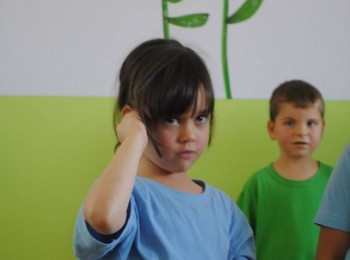 |
Acknowledging the outreach of ENV.net Survey and ENV.net 2013 Roudtable recomendations, EASD – ENV.net Serbia recognized importance of children/youth education for active EU citizenship , through promotion of EU environmental values. We would like to share moments from kindergarten “Pčelice”, from village Šetonje, as promotion event for environmental values in education. With children and teachers, as well as EASD Team, there were Prof dr Ivica Radovic and mr Ljubiša Antonijević, assistant ministers for education and science. |
Partnership with municipality – On November 18., 2013, ENV.net project presented on the Round table in Municipality Vračar (within City of Belgrade).
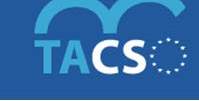 Cooperation with TACSO Serbia – On November 15. 2013, in Belgrade, TACSO Advisory Committee (LAG) organized a consultative meeting with representatives of civil society organizations and networks and Serbian civil society expert community. At the meeting a draft of a document on the assessment needs of civil society in Serbia was discussed.
Cooperation with TACSO Serbia – On November 15. 2013, in Belgrade, TACSO Advisory Committee (LAG) organized a consultative meeting with representatives of civil society organizations and networks and Serbian civil society expert community. At the meeting a draft of a document on the assessment needs of civil society in Serbia was discussed.
 EASD prepared Opinion and contribution to the Draft Strategy Paper for the Republic of Serbia 2014-2020. Through SECO mechanism opinion is sent to Governmental Office for European Integration. Opinion is based on Serbia 2013 Progress Report and Strategy – Reading by ENV.net Serbia Team .
EASD prepared Opinion and contribution to the Draft Strategy Paper for the Republic of Serbia 2014-2020. Through SECO mechanism opinion is sent to Governmental Office for European Integration. Opinion is based on Serbia 2013 Progress Report and Strategy – Reading by ENV.net Serbia Team .
Organisation capacity building process: EASD acknowledged becoming IPEN network Participating Organization
Eye on environmental laws changes: monitoring compliance with EU directives
November 2013. – The third ENV.net partnership meeting in Milan
28. October – Meeting with European Parliamentarians
ENV.net Serbia Team prepared document: Reading of 2013 Progress Report for Serbia and Strategy by ENV.net Serbia Team ( Serbia 2013 Progress Report and Strategy – Reading by ENV.net Serbia Team ).
____________________________________________________
22. and 23 October – Education on sustainable management of lead/chemicals
October 18 – EC Delegation in Serbia, present to relevant CSOs, on October 18, 2013 , Serbia Progress Report 2013, in which the Commission services present their assessment of what Serbia as the candidate country has achieved over the last year.
October 2013 : Participated on different events organized to raise awareness to EU approximation environmental challenges.
Promotion of ENV.net facebook page!
October 2, 2013 – ENV.net team participated at the First SEE Regional Science Promotion Conference (SCIPROM), opened in Belgrade, with the aim to bring together science promotion professionals, practitioners and enthusiasts to share experience and network in order to strengthen the link between science and society in our Region. In the current competitive global environment it is an imperative to enhance economic and social capacities by improving the educational structure of society, inspiring innovation and technological advancement and creating a milieu for appreciation of the value and benefits of knowledge. In the opening address, Minister for Education, Science and Technology development of Serbia underlined, among others the importance of knowledge based actions, as well as the importance of drinking water for development. Conference bring international experts and representatives of international organizations, research and educational institutions, science camps, science communicators, NGOs, private sector and media on board.
This conference justify the path of ENV.net Serbia implementation and development, linking European Integration, Knowledge based activities and sectors : Education, Science and Environment/Natural Resources.
____________________________
Waste management and water management are considered as two important segments of environmental acquis and studies in this area represent an important aspect of ENV.net project. Environmental accession status of Serbia ( waste , water and EIA thematic issues) was presented by EASD team at International Conferences in Vienna (Austria) and Zadar (Croatia), as well as on chemicals at SAICM Regional Meeting (Skopje, Macedonia FYR).
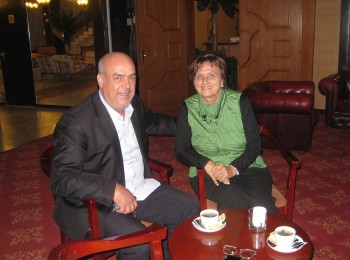 In addition, possible ENV.net partnerships are discussed with other participants and interested CSOs.
In addition, possible ENV.net partnerships are discussed with other participants and interested CSOs.
In Skopje, EASD representative met Macedonian 4x4x4 BB representative on September 26, 2013, to discuss possible enlargement of ENV.net project to Macedonia.
________________________________________
Promotion of ENV.net site in place Join us!
Added value for ENV.net Serbia is EASD activities within the development of Post-Rio+20 Agenda.
Office for Cooperation with Civil Society organized on September 6, 2013 Conference devoted to negotiating Chapter 27 (Environment). Presentation (in Serbian) from the Conference includes: Poglavlje 27 pregovori, Iskustvo R Slovenije, Natura 2000 Ministarstvo, Uloga civilnog drustva u monitoringu, Natura 2000 NGO )
September 2013: ENV.net project presented in the Ministry of Education, Science and Development of Serbia (Meeting of the National Committee for Environmental Education Programs)
August 2013. – Snapshot analysis : While waiting for EC 2013 Progress Report
___________________________________________________________________
ENVIRONMENT TO EUROPE – EnE
This project/process present different phases towards European values, as well as globally values promoted through Multilateral Environmental Agreements. Started to raise awareness of the importance of the UNECE Ministerial “Environment for Europe” Belgrade 2007 Conference, and further continuously is mobilizing interesting parties in Serbia and Region to catalyze environmental and sustainable development.
Within “Environment to Europe” Process, EASD actively participate and organize different supporting activities in different related thematic areas, like sustainable consumption and production, efficient resource use, chemicals, eco-consumers protection, participation at global, EC, regional and with papers at different conferences, etc. Regional cohesion projects supported Environment to Europe process.
__________________________________________________
EEB 2022 ANNUAL CONFERENCE – “Boosting the Deal for a Greener Europe in Turbulent Times”
Study visit to Grenoble – the Green Capital of Europe
EnE22, June 2022 – UNEP@50 and World Environment Day
December 2021 – Climate Pact for Serbia: Snapshot targeted rehearsal of country’s obligations in climate action….
Virtual tour on the experience from Italian practices in circular economy
Recap the moments from EnE19/ENV.net Conference
WEBINAR – Regional Forum of Sustainable Development (RFSD) for the UNECE Region : we participate
EASD full member in European Environmental Bureau – honor and challenge
The ESDN Conference 2018 – we participate ; We participate – ESDN Conference 2018, “Stakeholder-Policy Cooperation in the Age of the SDGs: What new approaches are required to be successful?”, Vienna (Austria), 1-2 October, 2018
Join us for June 5th: Conference Agenda is available
6th UN regional meeting on SAICM, Poland, February 2018: we participate
February 2018: Call for participation for EnE18: Nature protection – Nature-Responsive Development
February 2018: ENV.net 3 Kick-off Meeting in Tirana
November 2017: EASD participate: Summit to Plan the End of Amalgam in Europe 2017– November 20-21, Berlin
September 2017: “Make Mercury History” – EASD participated at Minamata COP1 in Geneva
July 2017: Civil Society Forum in Trieste, 11-12 July 2017 – we (EASD) participate ; Good signal: Serbia gets (again) separate Ministry of environmental protection
June 2017: Climate Change Education for Sustainable Development
April 2017: Call: The Thirteenth Regional Conference ”Environment to Europe – EnE17″, June 5th 2017, Belgrade
February 2017: “EnE17 – The 13th Regional Conference Environment to Europe” announcement: Climate Change Education
June 2016: Agenda , EnE16-ENV.net Zbornik radova/Proceedings of papers ; WED Messages from Serbia: 12th Regional Conference “Environment to Europe” , REPORT FROM EnE16-ENV.net, BELGRADE, SERBIA
January 2016 – Save the date and participate: June 6, 2016 – Environment to Europe Conference
June 5, 2015 – 2015 Conference, Information, Proc. of papers
We participate at European Green Week
December 2014 – Thematic Publication “Environment to Europe” ( Tematski zbornik radova “Životna sredina ka Evropi”)
June 5, 2014 – ENV.net multi-stakeholder Conference on Chapter 27: about 200 participants , 2014 Conference
Agenda for EnE14/ENV.net Conference “Environment to Europe”, June 5, 2014 in SCC – opening at 10:00
Invitation for EnE14-ENV.net Conference, June 5 – 2014 in Belgrade
EnE14 / ENV.net Conference will be held on June 5, 2014 in Belgrade (it will 10th regional conference!). Thematic focus: Chapter 27. Reserve the date! More information soon. Follow the updated information related to event.
__________________________________________________
EnE13 – Environment to Europe Conference on June 10, 2013 is focused on local environment. The main messages from this participatory ENV.net event are: environmental sector activities should be knowledge based, and education for environment and sustainable development should be priority. Capacities and continuity is very important for inclusion environment in other sectoral policies. Conference is institutionally supported by Ministry of Energy, Development and Environmental Protection and Ministry of Natural Resources, Mining and Spatial Planning, as well as National Commission for UNESCO. This Conference is UNEP WED event.
| 2013 | EnE13 | ENV.net Roundtable Focus: Local Environment | Agenda, Zbornik radova EnE13 – Zivotna sredina ka Evropi – Papers Proceedings; Minutes; More than 120 participants at EnE13 conference/ENV.net Roundtable: 10 June, 2013 in Belgrade |
Snapshots from the previous EnE “Environment to Europe” Conferences:
| Thematic focus | Published materials | ||
| 2005 | EnE05 | Thematic focus : The importance of Environmental Sector in EU Integration process | Detailed Agenda published.CD Proceedings of Papers published. Book “Sustainable Development and Environment towards Europe in 95+ steps”, by A.Mihajlov, published in Serbian |
| 2006 | EnE06 | European/developed countries values in environmental and related issues; lessons learned. At the same time, the Civil Society Forum EfE07 Meeting towards UN Pan-European Ministerial Conference Belgrade 2007 “Environment for Europe” held. | Detailed Agenda published.CD Proceedings of Papers published. Book “Sustainable Sustainable Development and Environment Towards Europe in 95+ Steps”, by A.Mihajlov, published in English |
| 2007 | EnE07 | Dedicated to contribute to upcoming UNECE “Environment for Europe” (2007, Belgrade) Pan-European Ministerial Conference ; NGO Declaration on Environmental Cohesion of Western Balkan agreed | Detailed Agenda published.CD Proceedings of Papers published. |
| 2008 | EnE08 | Youth and Vulnerable Groups in Environmental EU Accession | Detailed Agenda published. EnE08 Zbornik radova 4. regionalne Konferencije „Zivotna sredina ka Evropi“-sadrzaj published. |
| 2009 | EnE09 | Climate Change and Sustainable Tourism Conference | Detailed Agenda published (agenda EnE09) ; CD Proceedings of Papers published. |
| 2010 | EnE10 | Green Education and Green Economy | Detailed Agenda published ( Agenda EnE10 Konferencije ); CD Proceedings of Papers published. |
| 2011 | EnE11 | Rural and Mountain Sustainable Development | Detailed Agenda published (agenda_ene11) CD Proceedings of Papers published. Publication with selected paper published. |
| 2012 | EnE12 | Learning event for Rio=20 preparation – Green Economy and Governance for Sustainable Development | Detailed Agenda published ( Agenda EnE12 )
CD Proceedings of Papers published. UNDP/UNEP Green Economy Study published http://sustainabledevelopment.un.org/content/documents/984serbia.pdf |
EU Environment Partnership Programme for Accession
EASD is a member, participating organization in the project EU Environment Partnership Programme for Accession (EPPA) in the Western Balkans and Turkey seeks to be a major driver of reform and development in environmental governance through compliance with the EU environmental acquis (WG7). The programme builds on the results of the RENA and ECRAN programmes by furthering the regional cooperation and strengthening the administrative capacities of the beneficiaries. Regional cooperation provides the framework for sharing knowledge, expertise and good practices, and for addressing common environmental problems in a more sustainable and efficient way. The overall objective of the programme is to strengthen the implementation of the EU environmental acquis in the Western Balkans and Turkey in areas relevant for addressing trans-boundary environmental issues. EPPA concerns the Green Agenda for the Western Balkans as an instrument that will bring the European Green Deal closer to the Western Balkan countries by proposing a new economic development model, one based on the circularity of the economy, where the pressures on the use of natural resources are significantly reduced, while recycling and reuse are the order of the day.
Eco-Paket (Eco-Package) in Eco-Schools
Eco-package is a project implemented in Serbia since 2013/2014 school year, exclusively run in the framework of the International Eco-schools Programme.
Until 2019 the number of Eco-Schools participating in the project increased continuously. This project supported Eco-schools network in their activities performed to be linked to the education for sustainable development through realization of UN Sustainable Development Goals, primarily Goal 4 (Quality education), Goal11 (Sustainable cities and communities) and Goal 17 (Partnerships for the Goals).
The project consisted of three activities:
• creative art work competition: based on different theme, every year the students are collecting used beverage cartons (UBC)
• collection of used beverage cartons (UBC) and
• educational workshops for school children including the demonstration how UBC can be turned into paper (these workshops are being conducted by EASD since 2015/2016 school year).
The main goal was to raise awareness among pre-school children, school children and students of Eco-schools, their families and wider community about the need for sustainable use of resources on the example of correct methods of separation, disposal and recycling of used beverage cartons
Specific goals were:
– Educate pre-school children, school children and students about correct methods of separation and disposal of used beverage cartons.
– Encourage wider community to participate in the process of collection and recycling of used beverage cartons in order to raise their environmental awareness.
– Introduce sustainable forest management principle through FSC model, including sustainable production and consumption of used cartons.
– Present and promote companies and businesses that have incorporated the principles of sustainable development and social responsibility towards the environment and natural resources into their operation.
Main target groups were children in kinder gardens (pre-school institutions), pupils in primary and secondary schools and university students, as well as teaching and non-teaching school staff
Other target groups were parents/families/neighbours, local communities (including local companies, institutions, organizations) and media.
Outreach include Eco-schools Serbia network management, workshops organization, preparation of educational material, knowledge based advocacy, raising awareness among educational institutions and local communities on circular economy issue, establishing good cooperation with local communities where Eco-schools exist
From 2019/20 project is not active at national level
________________________________________________________________________________
More about Eco-Schools Program in Serbia.
Also, detailed instructions are posted in Serbian, as well as most news and announcements.
In addition, there is separated dedicated web sites (in Serbian) for this Eko-paket (Eco-Package) project, supported by Tetra Pak in Serbia.
________________________________________________
October 2018: Circular economy knowledge based advocacy in Eco-schools network in Serbia
October 2017: Eko-paket – Eco-Schools annual conference for the school year 2017/2018
May 2017: Eko-paket 2017 outcome
September 2016: Education for Sustainability
September 2016: FEE General Assembly 2016 and International Conference on Education for Sustainable Development, Ahmedabad, India
June 2016: WED Messages from Serbia: 12th Regional Conference “Environment to Europe”
May 2016: EASD Knowledge Partner with CEE for ESD for transforming education for children and youth
November 2015: Eco-Schools 2015 NOM in Northern Ireland
October 2015 – SDGs as the relevant part of the context within which FEE operates
January 2015 – Eco-schools Serbia in the International Eco-schools news
December 2014, status: ECO-SCHOOLS FAMILY IN SERBIA IS GROWING, CATALYZED BY ECO-PACKAGE ACTIVITY, On December 12, 2014 in Belgrade, two different activities, merged in one great and successful event, happened: Green Flags Award ceremony and Annual meeting of Eco-Schools Coordinators. Over 50 participants were present from all levels of education institutions. The main topics discussed include different ideas and methods on how environmental education in schools could be enhanced and better represented in school curriculum. Positive experiences are shared, in particular related motivation through ECO-PACKAGE activity, supported in Serbia by Tetra-Pak Production Company (Tetra Pak Production d.o.o Beograd in 2013/14 and 2013/14 supports Eco-Schools Program in Serbia, as a socially responsible company). From 3 Eco-schools in 2012/13, 15 in 2013/14, in Serbia there are in the moment 24 schools in different stages of Eco-School Program implementation 2014/15 (2 higher education institutions level, 1 secondary school level, 18 elementary schools and 3 pre-schools). Behind this growing success is NO Team in Serbia (from organization Environmental Ambassadors for Sustainable Development): National FEE Mentor for FEE Programs Prof.dr. Andjelka Mihajlov, National Eco-School Coordinator (until October 2014 Milica Petrovic, from October to December 2014 Dragana Grujicic, and in 2015 expecting new dedicated person on the board), National FEE Council (with representatives of supporting ministries, other relevant institutions and experts), Prof. dr. Natasa Zugic-Drakulic – Executive Director, assistance of Milena Tabasevic and Marina Marjanovic, as well as Coordinators and dedicated teachers, professors and principals in Eco-Schools (participants of 2014 Seminar): Andrijanić Zoran, Angeleski Alma, Babović Dragana , Božilović Dragica, Bursać Slađana,Davidović Stevan,Despotović Slavica, Đurović Ljiljana, Gligorovski Tatjana, Grahovac Prole Milijana, Ivanović Vesna, Janković Danijela, Jeličić Biljana, Joksimović Ana, Jovanović Dragana, Kocić Vesna, Luković Verica, Luković Brankica, Maksić Marina, Mandić Miroslav, Miloradović Dragana, Milosavljević Zorica, Momčilović Verica, Nikitović Dragana, Nikolić Perčević Đulica, Pantović Zoran, Perić Snežana, Sekulić Dragojle, Simendić Siniša, Stoiljković Slavica, Strugar Aleksandra, Vasiljević Milka, Večei Funda Valerija, Vidojević Mirjana, Vranić Darko, Grujičić Marina, Malinić Uglik Sanja, Planić Vasilie, Marković Jasmina, Radić Marija, Stanojlović Dragana and Ceranić Đuro. Moments from the Event are available at: http://ambassadors-env.com/gallery/eko-skole-12-12-2014/ and http://ambassadors-env.com/gallery/eko-skole12-12-2014-deo-2/
December 2014 – Eco-schools National Operators Meeting 2014 ; National Meeting of Eco-Schools Coordinators
May 2014 – With children, parents and teachers “cleaning up Serbia”
January 2014. : There are 18 schools in the Program, 3 of them already awarded with Green Flag
Meeting with Eco-Schools Coordinators, December 2013
Tetra Pak Production d.o.o Beograd in 2013/14 start to support Eco-Schools Program in Serbia. Tetra Pak, as a social responsible company takes part in this Program in order to raise awareness of children and local communities on the importance of responsible behaviour towards environment.
The first GREEN FLAG ceremonies : September 19 and 12, 2013 , November 19 2013
National FEE Committee Meeting, September 6, 2013 : 3 schools awarded
_________________________________________________
3 schools applied and started process in 2012-13 .
June 2013: International Mentor visited school “Drinka Pavlović” in Belgrade.
_________________________________________________
Program activities include summer schools, summer camps, etc.
Related activities: Education for Sustainable Development
Call for participation for EnE18: Nature protection – Nature-Responsive Development
We are pleased to invite you to The Fourteenth Regional Conference ”Environment to Europe – EnE18‘‘, which will be held on June 5th 2018 in Belgrade (Chamber of Commerce and Industry of Serbia). Conference is UN WED (World Environmental Day) and ESDW (European Sustainable Development Week) event. On the World Environment Day 2018 , the UN is expected to give emphasis on the fact that individual actions to preserve the nature can actually help in sustaining a green environment and to understand why forests are important.
Environmental Ambassadors for Sustainable Development in partnership with Chamber of Commerce and Industry of Serbia organize The Fourteenth Regional Conference ”Environment to Europe – EnE18”. Thematic area this year is Nature protection – Nature-Responsive Development
Nature protection is highly ranked on the list of priorities of the United Nations (Sustainable Development Goal 15 and UN Decade on Biodiversity by 2020), the European Union (NATURA 2000) and all countries that strive to preserve natural values, biodiversity, geodiversity have to develop with responsibility to nature. The goal of the UN Decade on Biodiversity is to support the implementation of the Strategic Plan for Biodiversity and to promote its overall vision of living in harmony with nature. UN SDG 15 refers to the protection, restoration and promotion of sustainable ecosystems use, sustainable forests management, combating desertification and preventing land degradation and biodiversity loss. In response to the threat to nature and biodiversity, the EU has formed a wide European network of protected natural areas, known as NATURA 2000. It covers over 18% of the EU territory, ensuring long-term survival of the most valuable and threatened species and habitats in Europe. Candidate countries and potential candidates for membership in the European Union are facing a great challenge to protect nature and implement a development responsive to nature.
The aim of the EnE18 Conference is to highlight the importance of environmental protection and sustainable development in the context of the protection of nature. The Conference is an opportunity for representatives of state institutions, professional, consultative, educational and scientific institutions, managers of protected areas, civil sector, to present current topics in the field of nature protection.
Traditionally, within the Conference every year we have a significant number of participants from Serbia and abroad, the participation of over 150 authors and co-authors of papers who published in the CD Proceedings of the Conference, as well as participants without paper.
We firmly believe that your scientific/research results/consultancy/views and experience will substantially help a better understanding of these fields. Being aware of the necessity of a close cooperation between science and practice, we invite you to take active participation in the Conference Environment to Europe – EnE18, either by preparing and presenting your paper or by contributing as an auditor and participant.
Application forms (with or without paper) should be sent by email: eneconference@feeserbia.com
Focus themes on WED through years:
- Theme of the year 2017 – “Join the race to make the world a better place”.
- Theme of the year 2015 – “One World, One Environment”.
- Theme of the year 2014 – “small island developing states” or “SIDS” and “Raise your voice, not the sea level”.
- Theme of the year 2013 – “Think. Eat. Save.” And slogan – “Reduce Your Foodprint”.
- Theme of the year 2012 – “Green Economy: Does it include you?”.
- Theme of the year 2011 – “Forests: Nature at your Service”.
- Theme of the year 2010 – “Many Species. One Planet. One Future”.
- Theme of the year 2009 – “Your Planet Needs You – Unite to Combat Climate Change”.
- Theme and slogan of the year 2008 – “CO2, Kick the Habit – Towards a Low Carbon Economy”.
- Theme of the year 2007 – “Melting Ice – a Hot Topic?”.
- Theme of the year 2006 – “Deserts and Desertification” and slogan – “Don’t Desert Drylands!.”
- Theme of the year 2005 – “Green Cities” and slogan – “Plan for the Planet!”.
- Theme of the year 2004 – “Wanted! Seas and Oceans” and slogan – “Dead or Alive?”.
- Theme of the year 2003 – “Water” and slogan – “Two Billion People are Dying for It!”.
- Theme of the year 2002 – “Give Earth a Chance”.
- Theme of the year 2001 – “Connect with the World Wide Web of Life”.
- Theme of the year 2000 – “The Environment Millennium” and slogan – “Time to Act”.
- Theme of the year 1999 – “Our Earth – Our Future” and slogan – “Just Save It!”.
- Theme of the year 1998 – “For Life on Earth and slogan – “Save Our Seas”.
- Theme of the year 1997 – “For Life on Earth”.
- Theme of the year 1996 – “Our Earth, Our Habitat, Our Home”.
- Theme of the year 1995 – “We the Peoples: United for the Global Environment”.
- Theme of the year 1994 – “One Earth One Family”.
- Theme of the year 1993 – “Poverty and the Environment and slogan – “Breaking the Vicious Circle”.
- Theme of the year 1992 – “Only One Earth, Care and Share”.
- Theme of the year 1991 – “Climate Change. Need for Global Partnership”.
- Theme of the year 1990 – “Children and the Environment”.
- Theme of the year 1989 – “Global Warming; Global Warning”.
- Theme of the year 1988 – “When People Put the Environment First, Development Will Last”.
- Theme of the year 1987 – “Environment and Shelter: More Than A Roof”.
- Theme of the year 1986 – “A Tree for Peace”.
- Theme of the year 1985 – “Youth: Population and the Environment”.
EASD activities related SDGs
EASD team , from January 1,2018 will follow activities through SDGs lenses:
SD GOAL 1 – No Poverty SD GOAL 2 – Zero Hunger SD GOAL 3 – Good Health and Well-Being SD GOAL 4- Quality Education SD GOAL 5 – Gender Equality SD GOAL 6 – Clean Water and Sanitation SD GOAL 7 – Affordable and Clean Energy SD GOAL 8 – Decent Work and Economic Growth SD GOAL 9 – Industry, Innovation and Infrastructure SD GOAL 10 – Reduced Inequalities SD GOAL 11- Sustainable Cities and Communities SD GOAL 12 – Sustainable Consumption and Production SD GOAL 13 – Climate Action SD GOAL 14 – Life below Water SD GOAL 15 – Life on Land SD GOAL 16 – Peace, Justice and Strong Institutions SD GOAL 17 – Partnerships for the GoalsIn addition, we are following our activities as UN Environment TOPICS:
AIR CHEMICALS AND WASTE CLIMATE CHANGE EDUCATION AND TRAINING ENVIRONMENTAL GOVERNANCE FORESTS GREEN ECONOMY RESOURSE EFFICIENCY SUSTAINABLE DEVELOPMENT GOALS WATER SCIENCE, INNOVATION ENVIRONMENT UNDER REVIEW ( ENVIRONMENTAL ASSESSMENT, INFORMATION MANAGEMENT).The goal of this activities categorisation is EASD strategic planning of activities in future. It is also lesson learned after EASD representative participation at UNEA3 in Nairobi.
Climate Change Education for Sustainable Development
The Thirteenth Regional Conference – EnE17 Environment to Europe was successful UN Environment WED and ESDW event. Traditionally, this Conference was organized by professional association “Environmental Ambassadors for Sustainable Development” and Chamber of Commerce and Industry of Serbia.
Especially interested was Panel on Climate Change Education for Sustainable Development (panelists are: Prof. dr Vladimir Đurđević, Faculty of Physics, University of Belgrade ; Prof. dr Aleksandar Jovović, Faculty of Mechanical Engineering, University of Belgrade; Prim. mr sci. med. Branislava Matić, Head of Unit for Human Ecology and School Hygiene at Institute of Public health of Serbia “Dr Milan Jovanovic Batut”; Nataša Đokić, Head of Department for planning projects at City of Belgrade, Secretariat for Environmental Protection; MSc Izabel Airas, Advisor for circular economy, Center for Circular Economy, the Chamber of Commerce and Industry of Serbia; prof. dr Anđelka Mihajlov (Member of the Government of the Republic of Serbia Negotiating Team for the Accession of the Republic of Serbia to the EU, responsible for climate changes in Chapter 27); Panel was moderated by Milica Momcilovic.
EnE17 was opened with introductory speeches by Goran Trivan, Secretary for Environmental Protection of the City of Belgrade with strong and clear message where it is and how it should develop the sector of environment and climate change in the Republic of Serbia, Päivi Alatalo, Deputy Head of the Mission, Embassy of Finland, Belgrade, Stanojla Mandic, Deputy Commissioner for Information of Public Importance and Personal Data Protection of the Republic of Serbia, Zoran Vujovic, Vicepresident, Chamber of Commerce and Industry of Serbia, PhD Mirjana Drenovak Ivanovic, Faculty of Law, University of Belgrade and member of the Government of the Republic of Serbia Negotiating Team for the Accession of the Republic of Serbia to the EU, responsible for specific sectors of Chapter 27, MSc Dusan Stokic, Co-organizer of the EnE17 Conference, Director of the Centre for Environmental Protection, Standards and Technical Regulation, the Chamber of Commerce and Industry of Serbia and PhD Dunja Prokic, the EnE17 Conference Chair person, Environmental Ambassadors for Sustainable Development. Conference was attended by representatives from government and non-government sectors, international organizations, scientific and educational institutions.
Conference participants (about 100 registered participants) were united in: education on climate change is very important in order to be able to mitigate the consequences of climate change and to adapt to them. Key role should have educational institutions to prepare and implement multidisciplinary programs tailored to different educational institutions and different age categories. Education on climate change requires professionals who will work with young people, so young people will be prepared to make the right decisions in the future. Participants in the discussion have tried to provide answers to questions on how to be more effective in environmental protection and responsive to nature.
The Conference awarded prizes for the best Young Reporters for the Environmnet (YRE), who took part in the competition, “Saving resources, do not throw, recycle!” The competition is organized in the framework of the FEE International Young Reporters for the Environmnet, implemented in Serbia by a professional association “Environmental Ambassadors for Sustainable Development” with RECAN Foundation support. Prizes are awarded MSc Aleksandra Mladenovic, Environmental Ambassadors for Sustainable Development president, MSc Milena Tabasevic, coordinator of the Young Reporters for the Environment in Serbia and Jelena Kis, manager of the RECAN Foundation for recycling beverage cans.
See pictures from Opening , Green Planet Award to Tetra Pak Company , Panel CLIMATE CHANGE EDUCATION FOR SUSTAINABLE DEVELOPMENT , YRE awards ceremony , Research papers presentation .
Radisson Blu – the first hotel in Serbia with the GREEN KEY
With today’s Green Key certification at the Radisson Blu Old Mill Hotel in Belgrade, Serbia gets its first hotel with the Green Key eco-label. Over 250 properties of the Carlson Rezidor Hotel Group, one of the largest hotel companies worldwide, are already eco-labelled. Rezidor hotels in Germany, France, Turkey, Finland, Netherlands, Nordic countries, Baltic States and the Middle East are certified with the Green Key.

Since 2010, the Carlson Rezidor Hotel Group has been successfully collaborating with the Foundation for Environmental Education, the international charity in charge of the management of the Green Key, with a long-term agreement currently in place until 2018. Rezidor’s ambition is that all its hotels in the Middle East, Europe and Africa should be eco-labelled by 2015, and Green Key is one of the preferred eco-labels for the hotel chain due to its high credibility. Each hotel is thoroughly audited before a Green Key is awarded.
During today’s official ceremony the International Green Key Programme Director, Finn Bolding Thomsen, has handed over the certificate to Thomas Swieca, General Manager at Radisson Blu Old Mill Hotel, Belgrade. “As a global and still growing company, sustainable economy is a principle we are focusing on. With the eco-label Green Key we confirm our company’s own responsible business program and make another consistent step which will have a positive impact on the environment,” Thomas Swieca explained.
Finn Bolding Thomsen was pleased to present the certificate on this special occasion: “Green Key is today one of the world’s largest eco-labels for the tourism industry with more than 2,300 sites in 48 countries having joined the program. It is a great honor to give the Green Key certificate to the Radisson Blu Old Mill Hotel as the first certified hotel in Serbia”. More…..
European Western Balkans Interview: Andjelka Mihajlov, Environmental Ambassador for Sustainable Development
European Western Balkans Interview: Andjelka Mihajlov, Environmental Ambassador for Sustainable Development
Prof dr. Anđelka Mihajlov, Environmental Ambassador for Sustainable Development, is a Full Professor at Faculty of Technical Sciences, the University of Novi Sad and Coordinator for environment and green economy at the Public Policy Institute. UN and EU expert, scientist and consultant. She has more than 300 published scientific papers. In last 20 years, her frameworks of the professional orientation are the environment and sustainable development.
European Western Balkans: What are in your opinion, the biggest ecological problems in Serbia?
Andjelka Mihajlov: The decades in which values and prosperity were/is created based on the principles of traditional economic models not managed to change ever-growing excessive consumption of natural resources and to fight marginalization of environmental issues. This is diagnosis for all over the Western Balkan region. My opinion is, that despite some good and very good snapshots and flagship cases relevant for environment sector, the highest environmental problem in Serbia, as well as in all countries in region, is “position” of sector in agenda of development: not among priorities and priority concerns.
EWB: Serbia expects one of the most difficult chapters in the negotiations with the EU, Chapter 27 relating the environment. In what extent is Serbia preparing for the opening of this chapter?
Serbia is having now 14 years of commitment to EU membership. In environmental sector it was, and it is a great challenge, especially having in mind “grey and brown environmental heritage”. In the frame of these more than ten years of actions, I could tell that improvement is respectable. However, a lot of issues remain unsolved.
In 2012 Serbia became a candidate for EU membership, and on 21st of January 2014 officially opened accession negotiations. Environmental negotiation process in Serbia started with Explanatory screening in September 2014, and followed with bilateral screening in November 2014. Screening report is expected by EC sometimes in 2015. Progress towards EU in the sector Environment (and Climate Change) vary from limited progress (2005), to moderate advanced (2006), little progress (2007, 2008, 2013,2014), some progress (2012), progressed well (2011), the establishment of ambitious legislative program (2002-2004), and to good progress (2009,2010).
And coming back to the question, Serbia is prepared and preparing to open negotiation in Chapter 27, with strong message from my side: it is crucially important to include people/experts with appropriate knowledge, skills and experience, as well as to effective coordinate actions with other sectors.
EWB: What will pose as a major challenge in this chapter?
AM: One of the main challenge is to harmonize socio-economic development with EU’s Resources-Efficient and Low-Carbon Policies and to implement in national legislation, already transposited EU environmental acquis at large extend.
I would like to underline a few national strategic documents: Strategy towards EU accession (2005), National Environmental Program (2010), with Action Plan (2014/15) and the 2011 National Environmental Approximation Strategy. The last one sets three goals: full and high quality transposition of the EU environmental acquis; maintenance of effective and affordable environmental infrastructure and services; and institutional arrangements for efficient approximation.
EWB: How much are events such as IV International Miteco Forum important in this process?
AM: I should acknowledge the intention of the Miteco Forum to bring professionals and experts to the floor, together with governmental official, international organization representatives and all interested in subject. I am very happy that I had opportunity to share reflection from 2014 European Resources Forum, just finished in Berlin, where I participated. I talked on Panel, promoting sustainable use of natural resources in hand with climate change actions. The part of my presentation was short introduction of the Seventh Environmental Action Program to the Miteco Forum audience.
And one more value of Miteco Forum – this is starting to be growing “family gathering” of professionals interested in environmental and waste issues. My pleasure is to see among them, my colleagues, followers, former and current students and civil society fellows.

EWB: What do you think is a good model for solving the problems of industrial and hazardous waste in companies that are in the process of restructuring?
AM: It is known, that personally I “entered” environmental sector through “hazardous waste door”. For years I was technical expert on Basel convention issues.
I do support main principles of preventive measures and environmentally friendly measures for and future generations’ well-being.
I do not support “one model fit all” in solving historical and existing pollution, mainly related to the industrial and the hazardous waste, in companies changing ownerships.
Environmental Due Diligence and environmental liability tools, combined with technical feasible solutions, could serve as the guideline frame. For now, when country do not have licensed hazardous waste facility, technical feasible solution is the export of hazardous waste (as it is practice in Serbia). It has to be understand, that when changing the ownership of company it should go hand-in-hand with proposed solutions and decision who is paying.
EWB: What are benefits of Serbia joining the European Union when it comes to the field of environmental protection?
AM: With EU accession and membership, Serbian citizens should have great benefits to share the same, high environmental values.
Empowering the environment sector, including promoting knowledge based actions and straightening expert capacities, as well investment in infrastructure that supports all aspects of sustainable development (sustainable/green growth) with socially sensible job creation, are challenges we are facing. We should “position” environment sector much higher in the agenda of development!
Andjelka Mihajlov was a member of the Serbian Government as the Minister for Protection of Natural Resources and Environment from June 2002 to March 2004, commencing significant reforms in the environmental sector in the country, with significant results in international and regional cooperation. In 2006, UN Environment Program identified her as the woman “environmental leader of the Western Balkans”. Prof. Mihajlov headed the expert team which prepared the Study on Green Economy for Serbia which was the basic platform for participation of the Serbian delegation at Rio+20 UN Conference in Brazil. In the period from 2005 to 2010, she was the member of the Environmental and Social Advisory Council to the European Bank for Reconstruction and Development in London. She is a member of the National Committee for UNESCO and the Committee for Environment and Sustainable Development of the Serbian Chamber of Commerce. She is national mentor for Foundation for Environmental Education with the seat in Copenhagen
Agenda for EnE14/ENV.net Conference “Environment to Europe”, June 5, 2014 in SCC – opening at 10:00
Conference Agenda
5. juni June 5th
| Velika sala u PKS, Resavska 15 | Serbian Chamber of Commerce, Resavska 15 |
9:00 – 9:45 Registracija učesnika /Registration
9:45 – 10:00 Preparation to opening sharp at 10:00 / Priprema da otvaranje bude sa početkom tačno u 10h
10:00 – 11:00 Uvodna obraćanja sa uručivanjem Zahvalnica za partnerstvo “Životna sredina ka Evropi” / Opening remarks with handing out Recognitions for “Environment to Europe” partnership
Predsedništvo: Siniša Mitrović, prof.dr Andjelka Mihajlov , prof.dr Nataša Žugić-Drakulić, Dušan Stokić, doc. dr Dunja Prokić
- Irena Vojáčková – Sollorano, UN Resident Coordinator / Visoki predstavnik UN u Srbiji
- Freek Janmaat, Head of European Integration and Economic Section, Delegation of the European Union to the Republic of Serbia, Direktor sektora za evropske integracije i ekonomiju, Delegacija Evropske unije u Republici Srbiji
- Gabriela Bennemann, Head of department for economy and trade at the German Embassy in the Republic of Serbia, Rukovodilac ekonomskog odeljenja nemačke ambasade u Republici Srbiji
- Stana Božović, State Secretary for Environment, Ministry for Agriculture and Environmental Protection/državna sekretarka za životnu sredinu (tbfc)
- Filip Radović, Head of Serbian Environmental Protection Agency – Ministry for Agriculture and Environmental Protection , Direktor Agencije za zaštitu životne sredine Republike Srbije-Ministarstvo poljoprvirede i zaštite životne sredine Republike Srbije
- Rodolјub Šabić,The Commissioner for Information of Public Importance and Personal Data /Poverenik za informacije od javnog značaja i zaštitu podataka o ličnosti Vlade Srbije
- Representative of the Government of Serbia’s Office for EU integration, Predstavnik Kancelarije za evropske integracije Vlade Srbije
- Željko Sertić, Serbian Chamber of Commerce President / Predsednik Privredne komore Srbije (tbc)
- Representative of SCC Commity of Environment and Sustainable Development/ Predstavnik Odbora za životnu sredinu i održivi razvoj PKS
- Snežana Radočaj, Head of Hemofarm Foundation/Direktorka Fondacije Hemofarm
- Aleksandar Dragišić, Head of Institute for nature conservation of Serbia/Direktor Zavoda za zaštitu prirode Srbije
- Prof. dr Stevan Lilić, Public Policy Institute Podgorica/Beograd/Ljubljana, Institut za javnu politiku Podgorica/Beograd/Ljubljana
- Saša Mihajlović,Green Serbian Chamber of Commerce President/ Predsednik Privredna komora Zelene Srbije
- Tatjana Trifunov, JP “Ada Ciganlija” Beograd
- Represebntative of OSCE in Serbia / Predstavnik OEBS u Srbiji
- Maja Spasojević, Head of Environmental Management, Health, Energy and Agriculture Department, EPTISA Regional Office for SEE, Eptisa Regional Office for SEE/ Direktor sektora zivotne sredine, energetike, zdravlja i poljoprivrede, EPTISA Regionalna kancelarija za jugoistocnu Evropu
- Prof.dr. Anđelka Mhajlov, Introductory message: Importance and Institutional set up in Serbia for Chapter 27 negotiation with EU / Uvodna poruka: Važnost i institucionalno organizovanje u Srbiji za pregovaranje poglavlja 27 sa EU
Note/Napomena: Pending invitation will be included in the final Agenda upon confirmation/ Uvaženi pozvani gosti će biti uvršćeni u finalni dnevni red, po dobijanju potvde učešća
11:00 -11:10 Technical Break / Tehnička pauza
11:10- 13:00 Plenary lectures / Plenarna predavanja
(Moderatori: Prof dr Hristina Stevanović-Čarapina, Prof. Dr. Predrag Simonović, Prof. Dr. Zora Dajić-Stevanovć, Draženko Bijelič, Milica Petrović)
Negotiating chapter 27: process and challenges, Arunas Kundrotas, Senior adviser on EU integration, ENVAP project, Jovana Majkic, Coordinator of Negotiaton Group 27, Ministry of Agriculture and Environmental Protection
EMAS III – DOBRODOŠLI U EU! / EMAS III – WELCOME TO EU!, DRAGANA PETROVIĆ, VICTORIA CONSULTING D.O.O./ EMAS NACIONALNI EKSPERT NA PROJEKTU EU: LAW ENFORCEMENT IN THE FIELD OF INDUSTRIAL POLLUTION CONTROL, PREVENTION OF CHEMICAL ACCIDENTS AND ESTABLISHING THE EMAS SYSTEM IN SERBIA,EUROPEAID/131555/C/SER/RS., BEOGRAD
CLIMATE CHANGE AND ECONOMY: TOURISM ASPECTS FOR GREECE, A.V. Michailidou, Ch. Vlachokostasa, Ch.-T. Tsourdioua, D. Spyridia, G. Baniasb, Ν. Moussiopoulosa, Laboratory of Heat Transfer and Environmental Engineering, Aristotle University Thessaloniki; School of Economics and Business Administration, International Hellenic University, Thermi, Greece
Multi-criteria Prioritization of the Flood Management Projects in Republica Srpska using PEPA Methodology, Merih Kerestecioglu, Mihajlo Stevanović, Ljiljana Stojić, Vassilis Evmopidis, COWI IPF Consortium ,Ministry of Agriculture, Forestry and Water Management of Republika Srpska
Aktivnosti Zavoda za zaštitu prirode Srbije u oblasti zaštite prirode, Poglavlje 27, Verica Stojanović, član radne grupe za Poglavlje 27
ENV.net PROJEKAT : NAPREDAK I IZAZOVI / ENV.net Project: Progress and Chalanges, Nataša Žugić-Drakulić i Filip Jovanović, Naconalna koordinatorka i asistent projekta Development of ENV.net in West Balkan and Turkey: giving citizens a voice to influence the environmental process reforms for closer EU integration – Ambasadori održivog razvoja i životne sredine/Environmental Ambassadors for Sustainable Development
Moj izbor, moje pravo–zdrava životna sredina!, Zorica Stevanović, Centar za razvoj građanskog društva “PROTECTA”, Niš
Vrste biljaka i životinja značajnih za zaštitu prirode u EU, Gabor Mesaroš, Udruženje za zaštitu i razvoj okruženja i graditeljskog nasleđa – Protego, Subotica
13:00-14:00 Break with buffet / Pauza sa posluženjem
14:00-14:15 Zajedničko fotografisanje dobitnika Priznanja za partnerstvo “Životna sredina ka Evropi” / Group Photo of awarded with Diploma for Partnership Recognition), Spisak na kraju Agende/List of awarded is included in the Agenda
14:15-17:00 Nastavak plenarnih predavanja – Plenary presentation continuation
(Moderatori: Milica Petrović, Draženko Bijelić, Uroš Rakić, Milena Tabašević, Radmila Marjanov-Panjević, Nataša Žugić Drakulić)
Učestalost prekoračenja GV PM10 – poređenje stanja kvaliteta vazduha u Republici Srbiji i EU, Anđelka Radosavljević, Tihomir Popović, Lidija Marić Tanasković, Biljana Jović, Agencija za zaštitu životne sredine
MEĐUNARODNI PROPISI O UČEŠĆU JAVNOSTI U DONOŠENJU ODLUKA I REPUBLIKA SRBIJA, TINA JANJATOVIĆ, MINISTARSTVO POLJOPRIVREDE I ZAŠTITE ŽIVOTNE SREDINE , DRAGOLJUB TODIĆ, INSTITUT ZA MEĐUNARODNU POLITIKU I PRIVREDU, BEOGRAD
SRBIJA U PROCESU EVROPSKIH INTEGRACIJA I ZNAČAJ PRIMENE EMS U ORGANIZACIJAMA LOKALNE SAMOUPRAVE, Novica Staletović, Nataša Borojević, Violeta Ćulibrk, Srđan Kovačević, UnivErzitet Union-Nikola Tesla, Fakultet za ekologiju i zaštitu životne sredine, Beograd; SO Plandište: EPS JP PK, Beograd
REZULTATI I PROBLEMI U SPROVOĐENJU IPA PROGRAMA PREKOGRANIČNE SARADNJE OD ZNAČAJA ZA OBLAST ŽIVOTNE SREDINE I POGLAVLJE 27, MLADENKA IGNJATIĆ, DRAGOLJUB TODIĆ, ISTRAŽIVAČKI FORUM EVROPSKOG POKRETA U SRBIJI
Izlaganja/Presentations
Promena ekološke svesti građana Bora od LEAP-a 2003. do LEAP-a 2013, Dragan Ranđelović, Milan Trumić, Toplica Marjanović, Ljiljana Marković Luković, Maja Trumić, Društvo mladih istraživača Bor
Application of geographic information system (GIS) in environmental monitoring, Uroš Rakić, Institut zа јаvnо zdrаvljе Srbiје „Dr Milаn Јоvаnоvić Bаtut” Beograd
Assessing Territorial Attractiveness in South East Europe/Ocena atraktivnosti teritorija Jugoistocne Evrope, Projekat, Blaž Barborič, Geodetski institut Slovenije, Republička agencija za prostorno planiranje
Eko-standardi kao konkurentska prednost u hotelijerstvu i turizmu, Jovana Stevanovic, Ratko Trifunovic, Milica Petrovic, Marija Kostic, Fakultet za hotelijerstvo i turizam u Vrnjackoj Banji, Vrnjacka Banja
ADAPTACIJE NA KLIMATSKE PROMENE U OBLASTI BIODIVERZITETA U REPUBLICI SRBIJI, Daniela Cvetković, Slađana Đorđević, Tanja Kukobat, Miloš Nikolić, Fakultet za primenjenu ekologiju Futura, Univerzitet Singidunum, Beograd
EKOLOŠKE MREŽE U FUNKCIJI SMANJENJA NEGATIVNOG UTICAJA KLIMATSKIH PROMENA NA BIODIVERZITET, Ljubica Petrović, Geografski fakultet Beograd
MALE VODENE POVRŠINE U KONTEKSTU KLIMATSKIH PROMENA, Radmila Marjanov Panjević, Ines Trivan Krivo, Ante Stantić, JP „ Zavod za urbanizam Grada Subotice
Praktični rezultati usaglašavanja sadržaja arsena u pijaćoj vodi Vojvodine sa zahtevima direktive 98/83/EC, Andrej Kukučka, Udruženje zaštite životne sredine RIO , Nov Sad
Uticaj deponije na zagađivanje podzemnih voda , Draženko Bjelić, Dragana Nešković Markić, J.P.’’DEP-OT’’ Regionalna deponija Banja Luka
Emergentne supstance i istraživanja 2020, Mirjana Vojinović Miloradov, Ivan Španik, Ivana Mihajlović, Olga Vyviurska, Draginja Kalinić, Jelena Radonić, Maja Turk Sekulić, Departman za inženjerstvo zaštite životne sredine, Fakultet tehničkih nauka, Univerzitet u Novom Sadu; Slovački Tehnološki Univerzitet u Bratislavi, Institut za analitičku hemiju, Univerzitet u Bratislavi, Slovačka
Primena biootpada kao heterogenog katalizatora u proizvodnji biodizela, Sofija Miškov, Ivona Radović, Mirjana Kijevčanin, Tehnološko – metalurški fakultet Beograd
Dinamika aeroalergenog polena u Subotici , Nataša Čamprag Sabo, Zavod za javno zdravlje Subotica
OPORAVAK DEGRADIRANOG ŠUMSKOG ZEMLJIŠTA SA ASPEKTA ŽIVOTNE SREDINE, Milijana Petković-Kostić, Jelena Đurić, Milena Stanojević, JP Zavod za urbanizam Niš
Energy efficient lighting – pilot project at University of Belgrade, Todorović Dušan, Jovović Aleksandar, Radić Dejan, Obradović Marko, Stanojević Miroslav, Bodrožić Jasmina, Janković Petar University of Belgrade Faculty of Mechanical Engineering, OSRAM d.o.o., Belgrade,Serbia
ENERGETSKA REHABILITACIJA FASADA I BEZBEDNOST OD POŽARA, Mirjana Laban, Fakultet tehničkih nauka, Novi Sad, Srbija
BIOGAS-REGULATIVE, STRATEGIJE I UPOTREBA U EU I REGIONU, Jelena Velimirović, Univerzitet ”Union Nikola Tesla”, Fakultet za ekologiju i zaštitu životne sredine
ALTERNATIVNI IZVORI ENERGIJE KAO OSNOVA ZAŠTITE ŽIVOTNE SREDINE, Milica Bulatović, Fakultet političkih nauka, Beograd
Obnovljivi izvori energije, Dejan Doljak, Geografski fakultet Beograd
ARHUSKA KONVENCIJA – ZAKONSKA REGULATIVA ČIJOM PRIMENOM SE U TOKU INVESTICIONE REALIZACIJE U RUDARSTVU DOBIJA KVALITETNA PROJEKTNA DOKUMENTACIJA, Nenad Nikolić, Nataša Đereg, Mioljub Stanković, Jovica Veljučić – Kerčulj, NVO „Lokalna Agenda 21 za Kostolac – OPŠTINA“;Centar za ekologiju i održivi razvoj – CEKOR“, Subotica; . Privredno društvo ”Termoelektrane – Kopovi Kostolac“ Kostolac d.o.o
STAVOVI I ZNANJA UČENIKA SREDNJIH ŠKOLA O EFEKTU STAKLENE BAŠTE, Nataša Bukumirić, Vesna M. Alivojvodić, Šimon A. Đarmati, Beogradska politehnika, Beograd
Gde smo bili, gde smo sada i kuda idemo?, Aleksandar Savić, Dragan Knežević, TS Rade Koncar Beograd
Poučavanje ekologije u školama u Hrvatskoj, Zrinka Sablić, Klara Lisec, Veleučilište VERN’, Zagreb
POTREBA ZA UVOĐENJEM PERMANENTNOG EKOLOŠKOG OBRAZOVANJA NA PRIMERU SREDNJIH STRUČNIH ŠKOLA, Marija Đurković, Elektrotehnička škola ”Nikola Tesla” Beograd
Strukovne studije zaštite životne sredine – stanje i potrebe, Darja Žarković, Olivera Jovanović, Koviljka Banjević, Saša Marković, Visoka škola strukovnih studija Beogradska politehnika, Beograd
UTICAJ KLIMATSKIH PROMJENA, ADAPTACIJA I RANJIVOST, Ljiljana Crnogorac
Klima Severoistočne Bosne, Senada Nezirović, Evropski Univerzitet Brčko Distrikt
Hajde da sprečimo +6 zajedno, Brankica Luković, Prvoslav Jovanović, Ljiljana Plećević, Milun Miljković, Jelena Đurđević, Visoka tehnološka škola strukovnih studija, Aranđelovac
Poučavanje ekologije u vrtićima u Hrvatskoj , Zrinka Sablić, Klara Lisec, Zvonimir Grgas, Zrinka Sablić, Veleučilište VERN’, Zagreb
Moralni i vaspitni elementi individualnosti, kao filozofija života i shvatanja prioriteta unapređenja društvene svesti o zaštiti životne sredine, Slobodan Petrović, Fakultet za pravo, javnu upravu i bezbednost Megatrend univerzitet
| 17:00 Zatvaranje konferencije / Conference closing |
Participation at UNEP Global Major Groups and Stakeholder Forum, Global Ministerial Environment Forum and High-Level Gender Forum
Environmental Ambassadors for Sustainable Development participated at the “Global Major Groups and Stakeholders Forum (GMGSF-14)”, and “The First Universal Session of the Governing Council/ Global Ministerial Environment Forum (GC-27/GMEF),” Nairobi, 16-22 February 2013. Ministers meeting for the first time under universal membership of 193 member states- again as a result of the decisions taken and adopted last year at Rio+20 and the UN General Assembly later in the year- adopted a welter of other decisions relating to the way UNEP will operate and work as the global platform for environmental policy-making and action over the coming years and decades. Governments called for the transformation of the existing Governing Council into a UN Environment Assembly of UNEP and to build stronger links between UNEP’s science-based Global Environment Outlook process and its ministerial meetings – further implementing the call by member states at Rio + 20to strengthen the science-policy interface.
Among the wealth of other decisions taken at the first Universal Membership of the UNEP Governing Council were: 1. A UNEP-led consortium will host and coordinate the Climate Technology Centre and Network (CTCN) which will be the implementing arm of the Technology Mechanism of the UN Framework Convention on Climate Change (UNFCCC), 2. The CTCN will work on leap-frogging the technical and financial hurdles to the even greater take-up of clean and renewable energies to low carbon tranportation and energy efficient buildings, 3. Full operationalization of a decade-long initiative to decouple economic growth from unsustainable use of natural resources and pollution generation-the 10 Year Framework of Programmes for Sustainable Consumption and Production Patterns (10YFP for SCP), 4. The UNEP-hosted initiative will assist countries in areas from sustainable public procurement, lifestyles and education to sustainable buildings and construction and sustainable tourism, including ecotourism – again bringing from outcome to implementation other key aspects of the Rio+20 Future We Want, 5. Governments also decided to convene in October this year an intergovernmental diplomatic conference to formally adopt the Minamata Convention on Mercury that was agreed in January in Geneva under a UNEP-facilitated negotiation-again a further implementation of the Rio+20 outcome document.
Over 1300 participants from 147 countries, including 80 ministers, representatives of UN agencies, international organizations, academia, NGOs, business and industry, and women and youth organizations attended the first Universal Session of the GC following the decision of the United Nations General Assembly to strengthen and upgrade UNEP, as called for in the Rio+20 outcome document. Delegates adopted 13 decisions, on inter alia:
– the Intergovernmental Science-Policy Platform on Biodiversity and Ecosystem Services (IPBES);
– coordination across the UN system, including the Environment Management Group (EMG);
– oceans;
– sustainable consumption and production;
– the green economy in the context of sustainable development;
– advancing justice, governance and law;
– state of the environment; and
– chemicals and wastes.
The GC adopted a decision on institutional arrangements that, inter alia, invites the UN General Assembly to rename UNEP’s governing body “UN Environment Assembly,” and provides that the body “will ensure” the active participation of all relevant stakeholders and explore new mechanisms to promote transparency and effective engagement of civil society in its work and that of its subsidiary bodies, inter alia, by: developing by 2014 a process for stakeholder accreditation and participation that builds on the existing rules of procedure and takes into account the inclusive modalities of the Commission on Sustainable Development (CSD) and other relevant UN bodies.
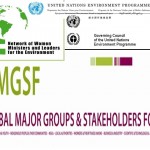
The day before the Governing Council got underway, the Network of Women Ministers and Leaders for the Environment (NWMLE) and UNEP hosted the second High-Level Gender Forum. Prof Andjelka Mihajlov participates, by invitation to “Gender Forum” as a member of the “Network of Environmental Women Ministers and Leaders”, as the former Minister for Protection of Natural Resources and Environment. The forum participants called upon ministers and environmental leaders to have dedicated officials for coordination of related gender and environment programmes and agreed to send a consolidated proposal on gender actions to be forwarded for consideration by UN Secretary General’s High-level Panel of Eminent Persons on the Post 2015 Development Agenda. The women ministers also requested nations to support the ratification of the Minamata convention on Mercury, which opens for signing in October.
More about meetings at www.unep.org . Moments from EASD participation are in Galleries of pictures. These activities are foreseen as the important international cooperation activities.
Prior to this, organisation participate at Rio+20 Conference.
RIO+20
”Environmental Ambassadors for Sustainable Development” , as UN accredited organization participate at 2012 UN Conference on Sustainable Development, as well as on side events.
Organisation participated in preparation of study Study on Achievements and Perspectives towards a Green Economy and Sustainable Growth in Serbia.
The Study has been prepared to support the Government of Serbia in its preparations for the Rio+20 United Nations Conference on Sustainable development, which is being held in Brazil in June 2012.
Rio+20
Agenda 2030 and SDGs in the focus of EASD work
Consultation with UN/UNDP in Serbia
First European-wide Sustainable Development Week
SDGs – SDSN members activities
World Environment Day – Raise the voice!
”Environmental Ambassadors for Sustainable Development” , as UN accredited organization participate at 2012 UN Conference on Sustainable Development, as well as on side events.
Organisation participated in preparation of study Study on Achievements and Perspectives towards a Green Economy and Sustainable Growth in Serbia.
The Study has been prepared to support the Government of Serbia in its preparations for the Rio+20 United Nations Conference on Sustainable development, which is being held in Brazil in June 2012.
International cooperation : European Resources Forum 2012
In support of the EU Commission’s “Roadmap to a Resource Efficient Europe” from September 2011 and the “German Resource Efficiency Programme” (ProgRess) adopted by the German Federal Cabinet in February 2012, the German Federal Environment Agency (UBA) hosted the first European Resources Forum (ERF) (http://www.resourcesforum.eu) in Berlin on 12-13 November 2012.
The conference objective was to discuss implementation steps, approaches and measures necessary for sustainable resource use, to promote alliances between stakeholders and inspire the set up networks. Sustainable development, sustainable production and consumption, as well as green economy are discussed. With more than 400 participants from over 40 countries including more than 40 top-level speakers from Germany and abroad – the conference was a great success. “Environmental Ambassadors for Sustainable Development” representative on this Conference (Scientific and other Conferences) was Prof. dr. Andjelka Mihajlov.

